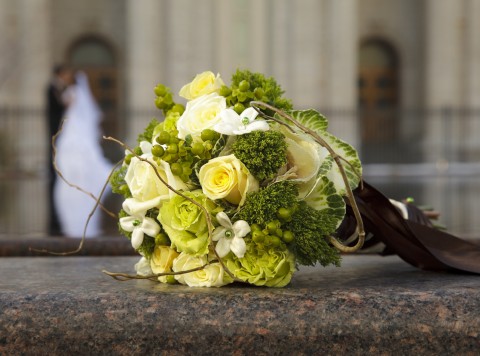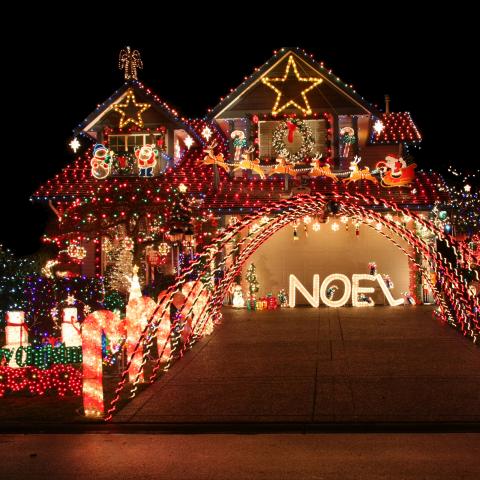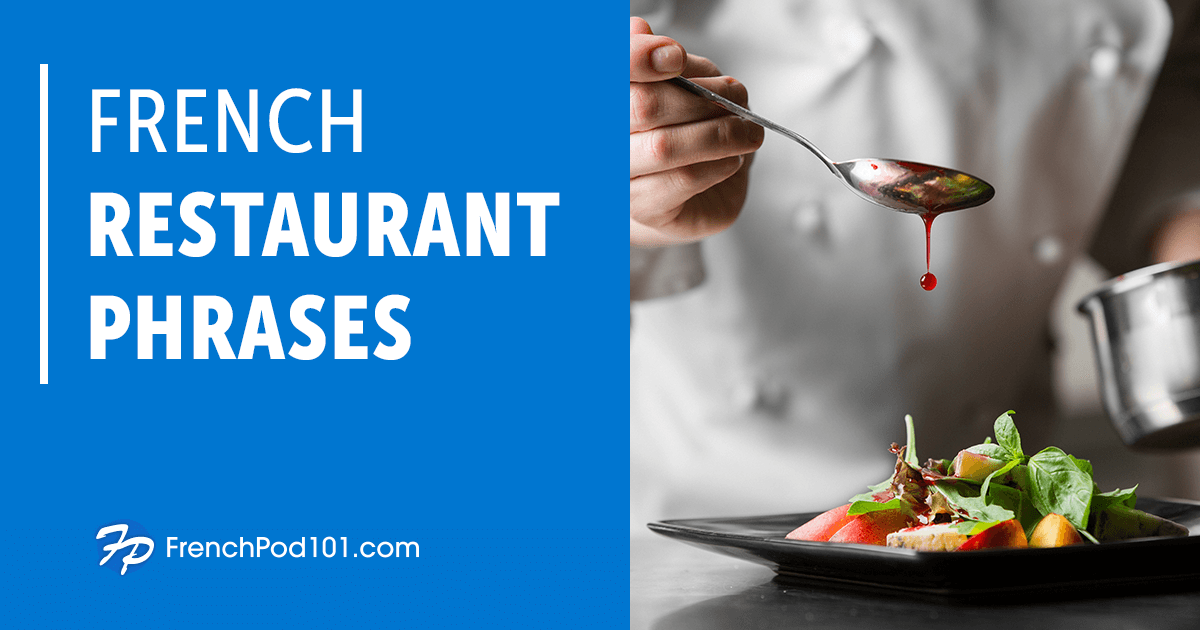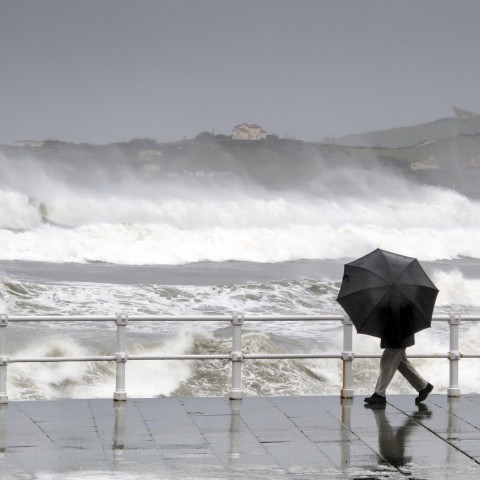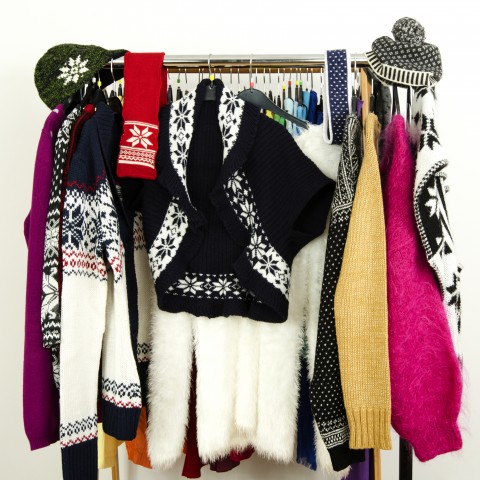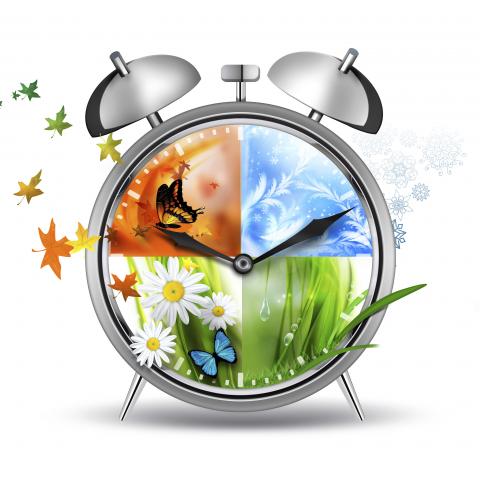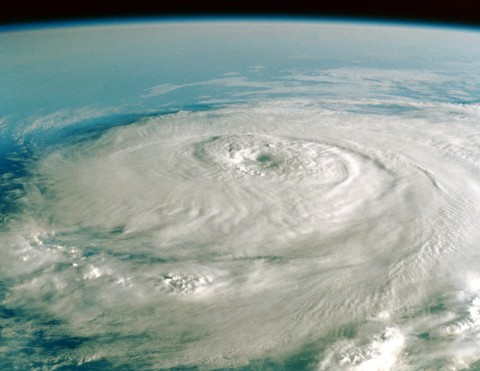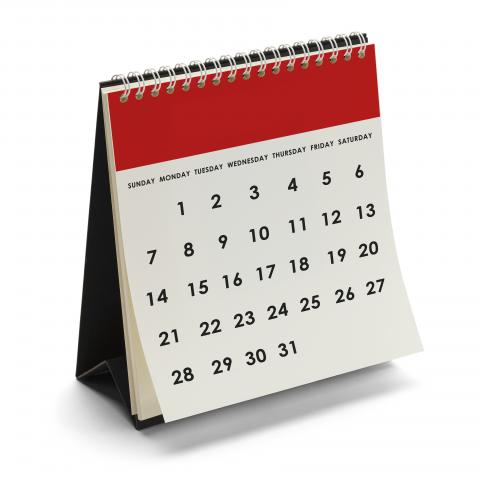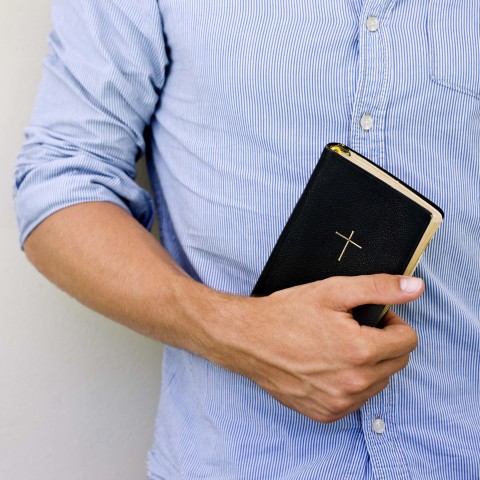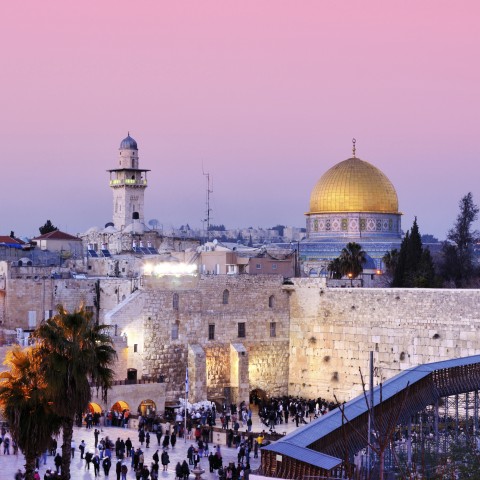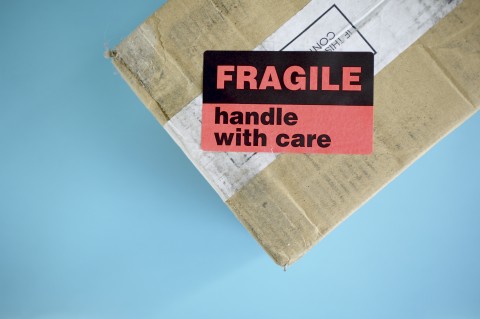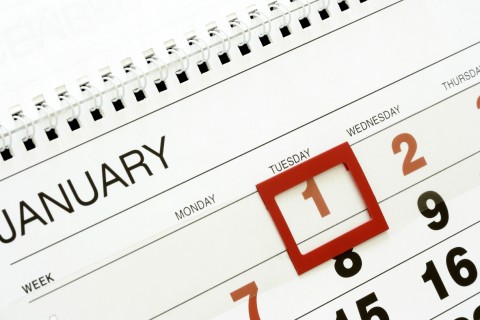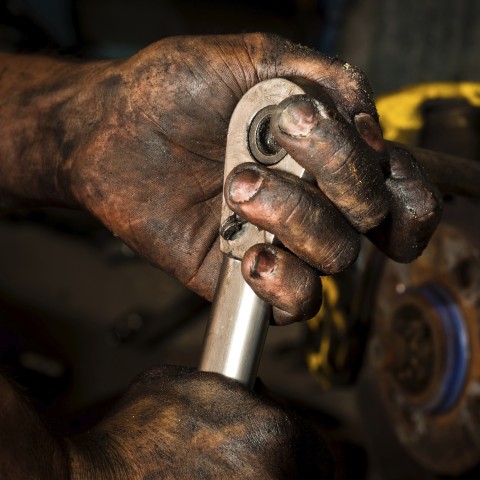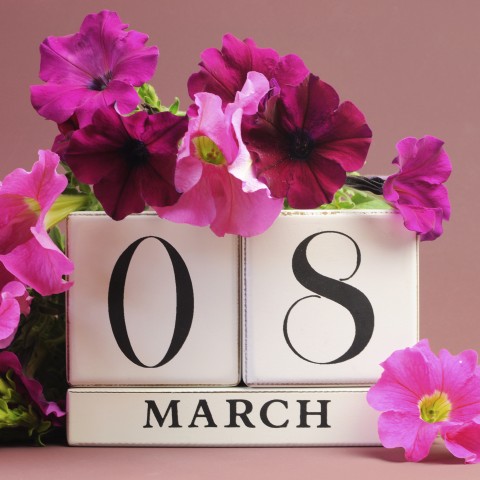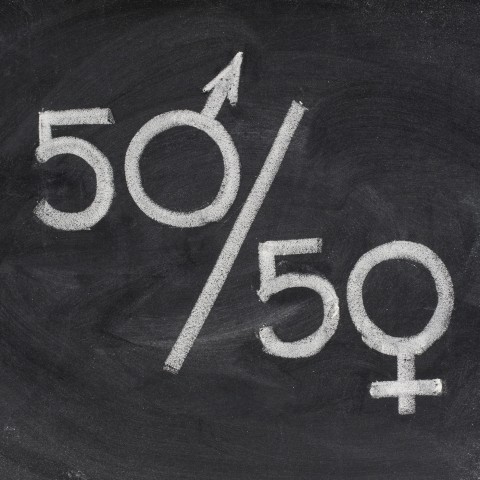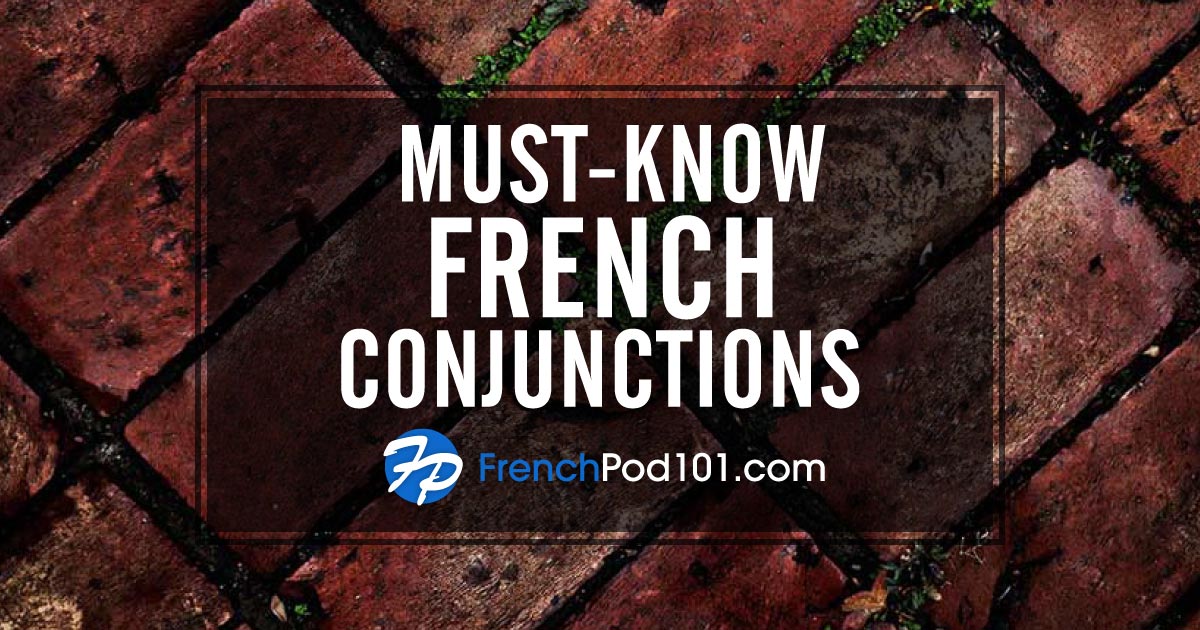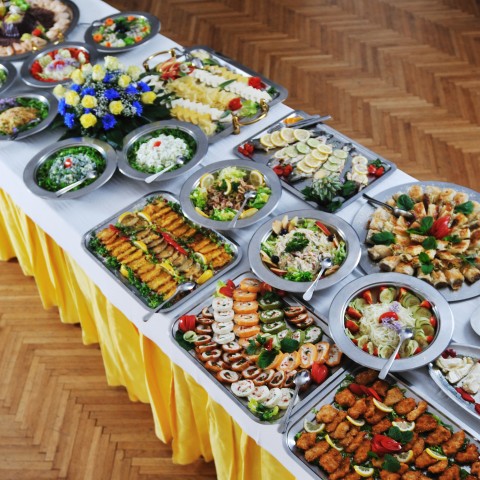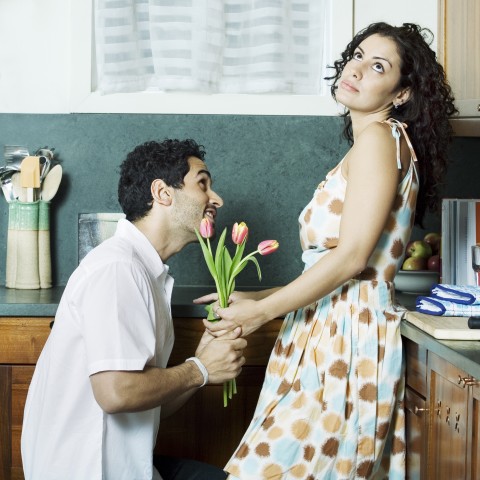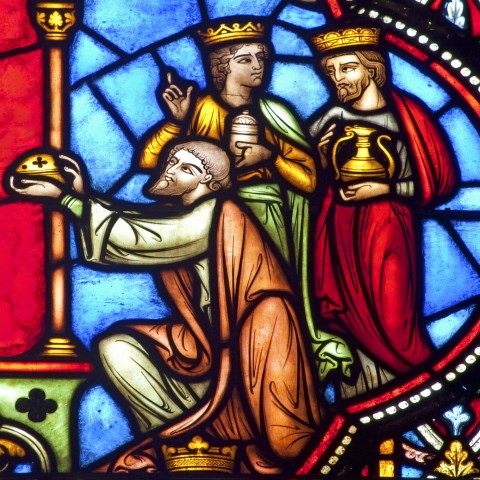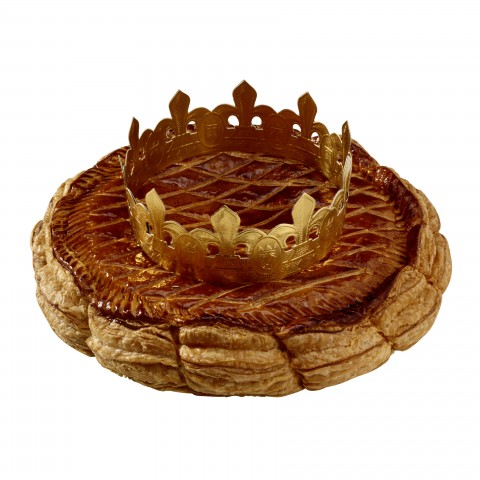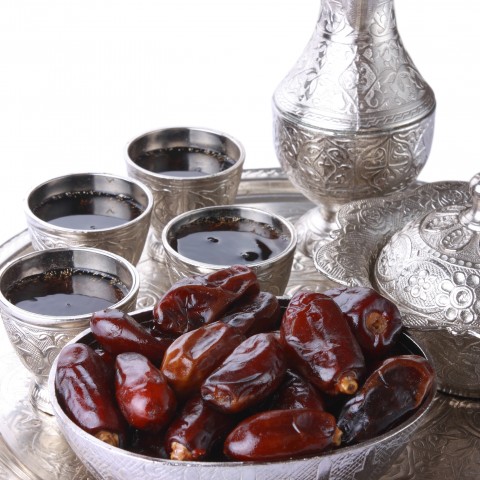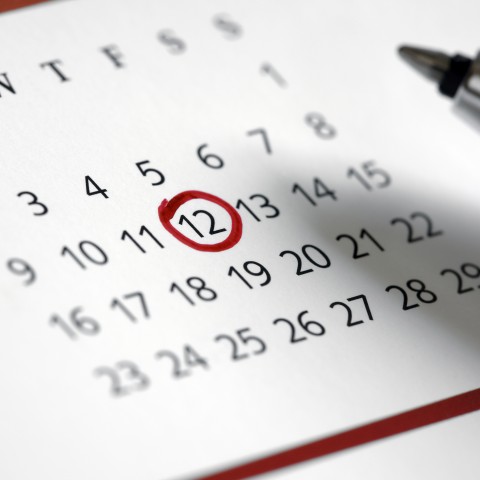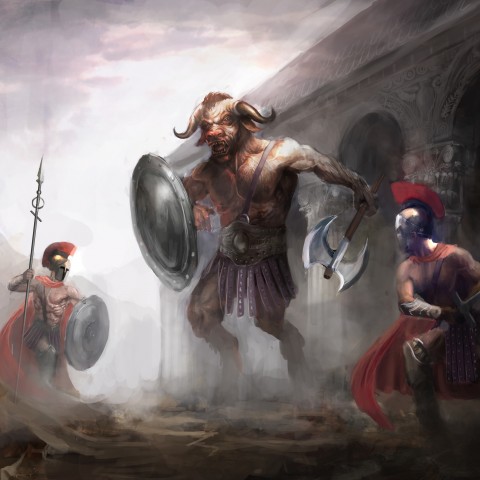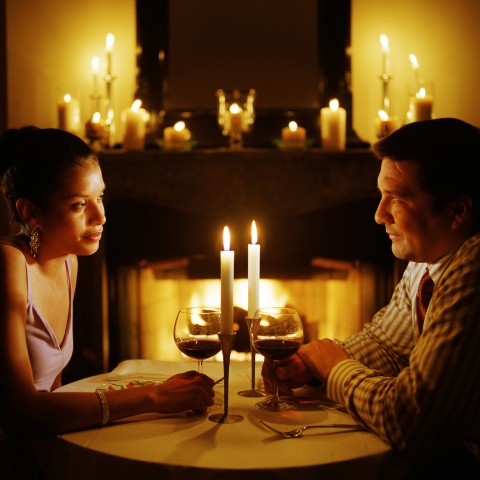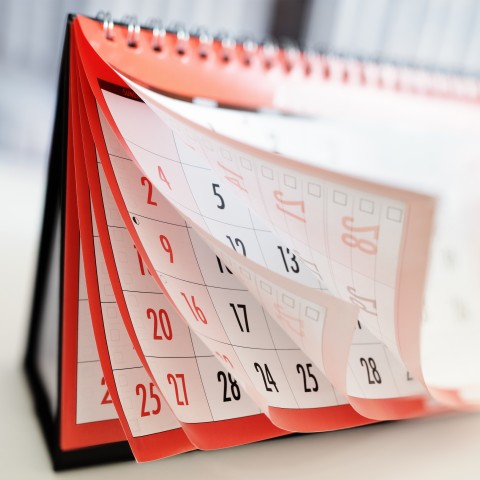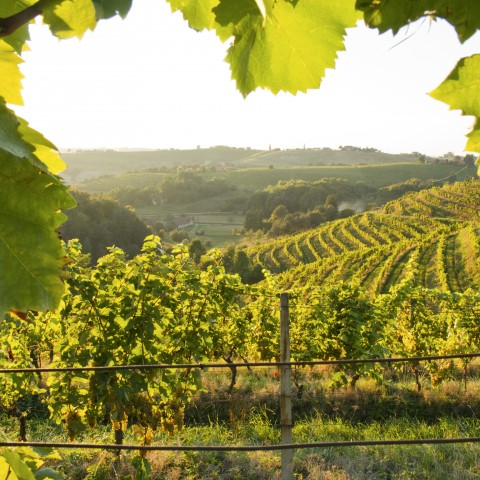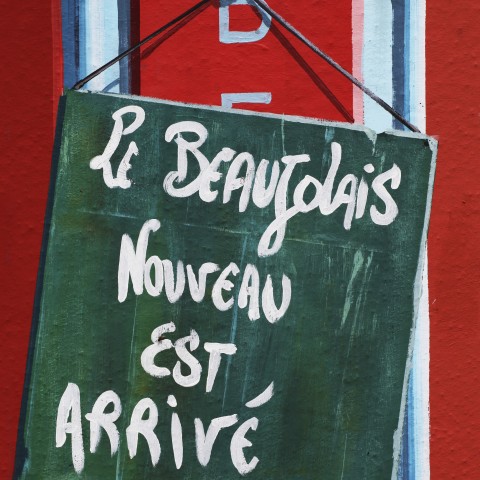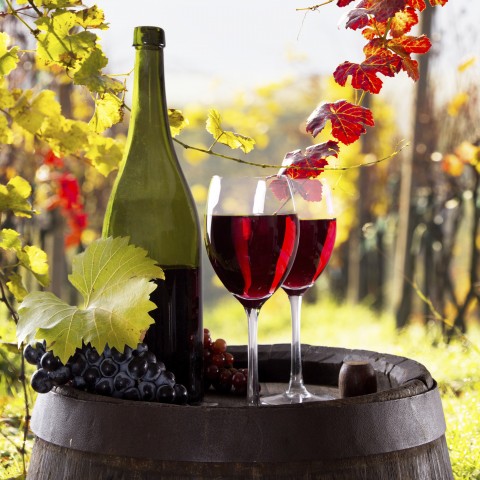Have you ever stopped to ponder on how much our lives revolve around defining moments? These could be happy or tragic, once-in-a-lifetime or recurring events, and depending on where you live, you might experience them in dramatically different ways.
If you live in France, have French friends, or have an interest in French culture, you need to know how major life events are handled there, and how to talk about them. You’ll need to know how to wish a happy birthday in French, a Merry Christmas or New Year, and how to offer condolences or wish for a swift recovery. Further, you’ll wish to know how to congratulate friends on their new degree, spouse, or offspring.
In this article, we’ll go through the ten major French life events and their cultural ins and outs. We’ll also provide you with a list of the most useful French phrases for congratulations (and condolences) so that you can take part in these pivotal moments, and as a result grow much closer to the people involved.

Table of Contents
- Joyeux Anniversaire ! (Happy Birthday!)
- Bonne Fête ! (Happy Name Day!)
- Naissance (Birth)
- Remise de Diplôme (Graduation)
- Nouvel Emploi (New Job)
- Retraite (Retirement)
- Mariage (Wedding)
- Funérailles (Funerals)
- Convalescence (Recovery)
- Fêtes (Holidays)
- How FrenchPod101 Can Help You Learn More French
1. Joyeux Anniversaire ! (Happy Birthday!)
Just like in many other European countries and North America, French birthdays usually involve a party with friends or family, a cake, some optional singing, blowing out candles, and receiving presents.
- There are no fixed rules on who should throw your fête d’anniversaire (birthday party). It could be friends, family, or even yourself. Most birthdays in France are celebrated either at home or a restaurant. In the latter case, you’re not expected to pay for everyone, but your friends might want to pay for you. It’s your special day, after all!
- Le gâteau d’anniversaire (The birthday cake) can be absolutely whatever: fruits, cream, chocolate, nuts, you name it. The white frosting cliché isn’t really a thing in France. Some like to cook the cake, while others prefer to buy it at the pâtisserie (pastry shop). We put les bougies (the candles) on it.
- Les cadeaux (The presents) are equally not codified and really depend on the person. For a kid, we usually go for a toy or book. Adults are tricky, but if you’re close enough to buy them a present, you should know what they like, right?
- La chanson (The song) is the easy part, with lyrics as simple as: Joyeux anniversaire, joyeux anniversaire, joyeux anniversaire Nicolas ! Joyeux anniversaire ! (Assuming the birthday boy is called Nicolas). Or you could go for this nightmarish song from humorist and singer Patrick Sebastien.
- Les cartes d’anniversaire (Birthdays cards) used to be a thing, and it never hurts to send one, but the younger generations go through social networks.
How to say Happy Birthday in French:
| Joyeux anniversaire ! Bon anniversaire ! Heureux anniversaire ! |
“Happy birthday!” |
| (Postcard greetings) Je te souhaite un joyeux anniversaire et plein de bonheur. |
“I wish you a happy birthday and plenty of happiness!” |
Don’t spit on the cake!
2. Bonne Fête ! (Happy Name Day!)
A tradition mainly in Europe and Latin America, name days are originally based on the Christian calendar of Saints, but everyone can celebrate it in France, even though we don’t make a big deal out of it.
Just locate your name on the calendar and you’ll know when your fête, or “name day,” is. You’re not featured there? Well, tough luck, but you won’t be missing much more than nice words and a pat on the shoulder. Presents and parties for a name day aren’t unheard of, but definitely not commonplace.
So, how do we celebrate a name day? More often than not, we don’t. Should you wish to do it, a small present or a postcard are safe bets, but buying a drink might work just as well.
Here’s how you can offer your congratulations in French to someone on their name day:
| Bonne fête ! | “Happy name day!” |
| Bonne fête, Nicolas ! | “Happy name day, Nicolas!” |
| C’est la Saint Nicolas aujourd’hui, bonne fête ! | “It’s Nicolas’ day. Happy name day!” |
3. Naissance (Birth)
We don’t do baby showers in France and have no pre-birth equivalent. This American tradition has been pushed through advertisement companies, but people are resisting, seeing it as consumerism or even something prone to bring bad luck. However, celebrations are held after birth with the regular shower of gifts.
Religious rituals have become unusual in France, and although biblical names are still popular, parents don’t choose the name of their newborn based on the Saint’s name of the birthday. Christian families can choose to baptize their children before their first anniversary, which leads to a Fête de baptème, or “Baptism party.”
| Toutes mes félicitations ! Sincères félicitations ! |
“Congratulations!” |
| (Postcard greetings)
Bienvenue au petit Nicolas ! Meilleurs voeux de bonheur à tous les trois ! Félicitations pour la naissance de votre fille ! Puisse sa vie être faite de rires, de chansons, d’allégresse et de découvertes ! |
“Welcome to little Nicolas! Best wishes of happiness to all three of you!”
“Congratulations on the birth of your daughter! May her life be filled with laughter, songs, joy, and discoveries!” |
Congratulations, it’s a baby!
-
→ Make sure to visit our vocabulary list about Common Phrases about Babies, with audio recordings to practice your pronunciation. It’s freely available on FrenchPod101.
4. Remise de Diplôme (Graduation)
Graduations are usually not cause for wide-scale celebrations in France, but we have nothing against it! Graduated students can celebrate among themselves over a drink or a party, while schools or universities can also organize festive events on graduation day.
Parents sometimes offer presents to their children to celebrate their success, but there are no conventions on what these gifts should be.
| Félicitations ! Bien joué ! Bon travail ! |
“Congratulations!” “Well done!” “Nice job!” |
| Bravo pour ta réussite ! Bravo pour ton diplôme ! Félicitations pour ton examen ! |
“Congratulations on your success!” “Congratulations on your degree!” “Congratulations on your test!” |
| (Postcard greeting)
Bravo pour ton diplôme bien mérité après tout ce travail acharné. |
“Congratulations on a well-deserved degree after all of your hard work.” |
-
→ Learn more about education and degrees with our free vocabulary list on the Graduation Season.
5. Nouvel Emploi (New Job)
Work isn’t as prominent in French mentality as it is in other countries. It’s generally accepted that you should work for a living but not live for your work, and as a result, the French are trying to strike the right balance between their professional and personal lives, without dedicating too much to their workplace.
Similarly, new jobs and promotions are usually not a big thing. Your new job can typically be celebrated with your partner, while promotions are a good excuse for a drink among colleagues.
| [Casual] Bravo pour ton nouveau job ! Bravo pour ton nouveau poste ! |
“Congratulations on your new job!” “Congratulations on your new position!” |
| [Formal] Félicitations pour ton nouvel emploi. Félicitations pour ta promotion. |
“Congratulations on your new position.” “Congratulations on your promotion.” |
| (Postcard greeting)
Toutes mes félicitations pour votre promotion ! Etant donné la qualité de votre travail, une telle reconnaissance est amplement méritée. | “Congratulations on your promotion! Considering the quality of your work, such a recognition is well-deserved.” |
Embrace your new career with a cheesy smile.
-
→ Get ready to congratulate your friends on any new position with our free vocabulary list on Jobs.
6. Retraite (Retirement)
Most French retire between the ages of sixty and seventy, but l’âge de la retraite, or “the retirement age,” is steadily rising. This is a cause for concern and social unrest in the country.
The pension system is contribution-based. A retiree’s pension is proportional to the amount of contributions he paid during his working life. Those contributions are directly taken from the salary, in the form of a tax.
When their retraite, or “pension,” (yes, this is the same word as for “retirement” ) allows for it, it’s fairly common for the French to enjoy their retirement by traveling, either in the countryside or abroad.
Here are some ways to go about congratulating someone in French for their retirement:
| [Professional] Bonne continuation ! | “All the best!” |
| [Casual] Profite bien de ta retraite ! | “Enjoy your retirement!” |
| (Postcard greeting)
Je te souhaite une heureuse et sereine retraite. |
“I wish you a happy and peaceful retirement!” |
7. Mariage (Wedding)
Weddings in France can be celebrated in many different ways, depending on your religion, social status, and personality. The celebrations range from an unpretentious informal event to a fastuous large-scale banquet of expensive delicacies, with awe-inspiring choregraphies and expertly crafted speeches.
- A French marriage is typically planned up to years in advance, and don’t leave much to improvisation (or spontaneity, for that matter). Hiring a wedding coach is a new trend for the wealthiest couples.
- The tradition of enterrement de vie de garçon (“bachelor party,” but literally “Burial of boy’s life”)—enjoying your single life to the fullest, with heavy drinking and strippers, before shackling yourself to your spouse for the rest of your days—appeared recently and is gaining in popularity.
- Mariage religieux, or “religious weddings,” have been on the decline for a while, and most people marry at their town hall. The PACS (civil union, that used to be the only option for same-sex unions before) is quickly becoming the most popular option.
- We don’t do wedding rehearsals or rehearsal dinners.
Here are some of the most common French marriage congratulations:
| Tous mes voeux de bonheur. | “Best wishes of happiness.” |
| Toutes mes félicitations pour votre union Toutes mes félicitations pour votre mariage. |
“Congratulations on your union.” “Congratulations on your wedding.” |
| (Postcard greeting)
Sincères félicitations et meilleurs voeux de bonheur. |
“Sincere congratulations and best wishes of happiness.” |
“Wait, did you bring the bouquet?”
-
→ Practice your romantic fluency with our free vocabulary list on Quotes about Love.
8. Funérailles (Funerals)
Some peoples around the world see death as a cheerful event, cause for celebration and rejoicing. French funerals, however, are as grim and depressing as you can expect them to be if you grew up in a western country.
- Enterrement, or “burial,” is the most common way to go, but crémation, or “cremation,” is also an option.
- The tradition of veillée funèbre, or a “wake,” is on the decline but still going strong in villages. The modern version is often held in a dedicated rented place (and not in the house of the deceased, like it used to be), and usually not through the night.
Here’s some French condolences messages and French phrases for condolences:
| Repose en paix. Paix à son âme. |
“Rest in peace.” “May he/she rest in peace.” |
| Toutes mes condoléances. | “My condolences.” |
| (Postcard condolence)
Nous partageons votre douleur et sommes de tout coeur avec vous. |
“We share your pain and our hearts go out to you.” |
9. Convalescence (Recovery)
Serious illnesses or grave injuries are tragic yet important events for anyone. In France, it’s fairly common for friends and family to visit someone at the hospital, to keep them company or bring them gifts in the hope of helping with their recovery by lifting their spirit.
At the workplace, when someone is away on a long sick leave, their coworkers can write a group card with greetings and wishes.
| Bon rétablissement ! | “Get well soon!” |
| [Casual] Prends soin de toi ! | “Take care!” |
| [Formal] Je te souhaite un prompt rétablissement. | “I wish you a swift recovery.” |
“Look mom, we found you a new kidney on Craigslist!”
10. Fêtes (Holidays)
Classic French holidays include:
- Noël (Christmas).
Most French celebrate it without any religious connotation, but this is still arguably the biggest holiday of the year. Our traditions involve un arbre de Noël (Christmas tree), une crêche (a small nativity scene) in Christian families, une bûche de Noël (log-shaped Christmas cake), and lots of cadeaux de Noël (Christmas gifts), especially for kids. - Nouvel an (New Year).
This one comes a little too close after Christmas’ hangover, but it’s duly celebrated by most French anyway. It’s not as traditional, though, and may take any form, from a family dinner to a restaurant with friends, a romantic walk on the Seine, or a gathering of fireworks enthusiasts. - Pâques (Easter).
Celebrating Easter in France involves bells, des oeufs de Pâques (Easter eggs), and most of all, LOTS of chocolate. It’s common to hide chocolate eggs around the house and/or garden and let the children go on a treasure hunt. Adults gift each other with fancy Belgian chocolate treats.
We have many more holidays! You can find them all on our French Calendar, on FrenchPod101.
A few more celebrations worth mentioning:
- Halloween started growing in popularity roughly a decade ago, and is now widely celebrated throughout the country.
Unsurprisingly, our most conservative fellow citizens see it as overly commercial and a threat to our traditions, but it doesn’t prevent the younger generation from throwing Halloween parties and wearing their ghoulish costumes in the street.
The French Halloween is mainly for adults celebrating at home or in local bars, while children rarely go door-to-door for trick-or-treating.
- Thanksgiving isn’t celebrated in France, and most French don’t even know what it’s about. However, given our love for never-ending dinner and delicious food, I’m sure there’s hope for this tradition to eventually land on our shores.
| Joyeux Noël ! | “Merry Christmas!” |
| Bonne année ! | “Happy New Year!” |
| Joyeuses Pâques ! | “Happy Easter!” |
| Poisson d’avril | “April’s Fool” |
| Saint Valentin | “Valentine’s Day” |
Joyeux Noël ! (“Merry Christmas!” )
-
→ Don’t let the Christmas season take you off-guard; learn more festive vocabulary with our free list on Christmas!
11. How FrenchPod101 Can Help You Learn More French
In this guide, you’ve learned everything about the main life events as experienced in France, from birth to birthdays, weddings, and funerals. You’ve also learned the most important French phrases of congratulations, condolences, and well-wishing.
Did I forget any important event that you’ve been through or heard about? Do you feel ready to take part in these defining moments of the lives of your French friends with all the right words and phrases?
FrenchPod101 also has tons of vocabulary lists with audio recordings, and free resources to boost your studies and keep your French learning fresh and entertaining!
Remember that you can also use our premium service, MyTeacher, to get personal one-on-one coaching and practice life event phrases with your private teacher. You’ll gain access to assignments, personalized exercises, and recorded audio samples, and an experienced tutor to review your work and help improve your pronunciation. Happy learning on FrenchPod101!

About the Author: Born and bred in the rainy north of France, Cyril Danon has been bouncing off various jobs before he left everything behind to wander around the wonders of the World. Now, after quenching his wanderlust for the last few years, he’s eager to share his passion for languages.
Your Guide to Talking about French Weather
Do you often imagine yourself as Nicolas Cage in the movie The Weather Man? Are you looking for a couple of lines to chat with your French neighbors or catch the attention of a charming coworker by talking about the weather in Paris, France? Or are you engrossed in how climate change is threatening the future of mankind and eager to tell everyone about it?
No matter your level of French, commenting on the weather is a common way to engage in conversation with someone you don’t know anything about, as it’s the kind of innocuous universal topic anybody can talk about. Sure, it may not lead to a passionate debate (or maybe it will, on how the weather used to be forecasted before the time of satellites!) or a thought-provoking exchange of opinions, but as an ice-breaker or a casual conversation topic among strangers, it gets the job done.
In this article, we’ll cover everything you need to know to talk about the weather in French, from sunny days to pouring rain, and misty mornings to windy nights.

Table of Contents
- What is the Weather Today?
- What is Your Favorite Season?
- Be the Coolest and the Hottest!
- How to Break the Ice?
- Is it True that the French Dislike Small Talk?
- How FrenchPod101 Can Help You Learn More French
1. What is the Weather Today?
1- Just Four Easy Phrases
Talking about weather in French is nothing complicated. Describing the different weather conditions in French comes down to only four common sentences, and nothing more. How beautiful is that?
- il fait ___ (it does ___)
- il y a ___ (there is ___)
- il ___ [verb] (it ___)
- c’est ___ [adj] (it is ___)
Using only these four structures, you can describe any kind of weather in French. Let’s have a closer look before moving onto French weather vocabulary:
- il fait ___ is used to describe the most basic weather states.
- il fait chaud (it is hot; literally “it does hot,” when translated)
- il fait très froid (it is very cold)
- il fait frais (it is fresh)
- Il fait humide (the weather is humid)
- il fait beau (the weather is good, literally “it makes beautiful,” when translated)
- il fait moche (the weather is ugly)
Now, these two can be heard depending on the region, generation, and education of the speaker:
-
- il fait du vent (it is windy)
- il fait (du) soleil (it is sunny)
I would personally use il y a instead. Let’s check it out now.
- il y a ___ is used for basic weather states, when il fait doesn’t do the job.
- il y a du brouillard (there is fog)
- il y a du vent (there is wind)
- il y a du soleil (there is sun)
- il___ [verb] is followed by a verb and used mostly when the sky is pouring something on you.
- il pleut (it is raining)
- il neige (it is snowing)
- il grêle (it is hailing)
- c’est ___ [adj] is followed by adjectives to describe the weather in French when talking about basic weather states.
- c’est pluvieux (it is rainy)
- c’est nuageux (it is cloudy)
- c’est orageux (it is stormy)
2- Weather Pocket Dictionary:
Now that you have the four basic sentences, all you need is a bit of vocabulary before you can take over Évelyne Dhéliat as the French’s favorite weatherman!
| Le soleil “The sun” |
Il y a eu du soleil toute la journée ! “It was sunny all day long!” |
| La pluie “The rain” |
Il pleut toujours beaucoup en mai. “It is always very rainy in May.” |
| Les nuages “The clouds” |
Il y a des nuages depuis ce matin, il va pleuvoir. “There have been clouds since the morning; it is going to rain.” |
| La neige “The snow” |
J’espère qu’il y a assez de neige pour skier. “I hope there is enough snow to ski.” |
| Le brouillard “The fog” |
Le brouillard se lève souvent dans la matinée. “The fog often lifts during the morning.” |
| La grêle “The hail” |
Une averse de grêle peut causer de sérieux dégâts. “A hailstorm can cause serious damage.” |
| Le verglas “The black ice” |
Le verglas est une couche de glace qui se forme sur les routes. “Black ice is a coating of ice that appears on a road surface.” |
| Le vent “The wind” |
L’avion ne pourra pas décoller avec un vent pareil. “The plane won’t be able to take off with such a wind.” |
| L’orage La tempête “The storm” |
Ca va être un orage fantastique ! “It’s gonna be a terrific storm!” |
| La foudre “The thunder” “The lightning” |
Il y a plus de chance d’être frappé par la foudre. “Got a better chance of being struck by lightning.” |
-
→ Make sure to visit our vocabulary list about Weather Words and Expressions, with audio recording to practice your pronunciation. It’s freely available on FrenchPod101.
Il pleut à verse ! (“It’s pouring!”)
3- Be Weatherproof!
I usually don’t use an umbrella. I find them bulky, easy to break, and they make a mess in your bag if you didn’t dry them properly.
Why am I talking about this? Because when talking about adverse weather in French, you can’t skip out on humanity’s reactions to it. We’ll now have a look at all of mankind’s amazing inventions to void nature’s attempts at making us wet, cold, and miserable.
| Un parapluie “An umbrella” |
N’oublie pas ton parapluie ! “Don’t forget your umbrella!” |
| Un manteau “A coat” |
J’ai un gros manteau pour l’hiver. “I have a big coat for the winter.” |
| Un imperméable Un imper [Familiar] “A raincoat” |
Sans mon imper, je serais déjà trempé. “Without my raincoat, I would be soaked already.” |
| Un K-Way “A windcoat” |
(Like Kleenex® or Caddie®, K-Way® is a brand used a noun) J’ai toujours un K-Way dans mon sac, au cas où. “I always have a windcoat in my bag, just in case.” |
| Des gants “Gloves” |
Je ne peux pas utiliser mon téléphone avec mes gants. “I can’t use my phone with my gloves.” |
| Une écharpe “A scarf” |
Mets ton écharpe ou tu vas t’enrhumer. “Put your scarf on or you’ll catch a cold.” |
| Un bonnet “A winter hat” |
Mon bonnet est humide à cause de la neige. “My hat is wet because of the snow.” |
| Des lunettes de soleil “Sunglasses” |
S’il fait beau, je porterai mes lunettes de soleil ! “If the weather is nice, I will wear my sunglasses!” |
-
→ Don’t let the cold bite you! Bundle up in your coat, scarf, and boots and learn all these words with our free vocabulary list on Winter Clothes.
Les vêtements d’hiver (“Winter clothes”)
2. What is Your Favorite Season?
There was a not-so-distant time when I would answer “spring.” Nowadays, I would say “season 3” for Game of Thrones and “season 4” for The Wire. What about you?
If you’re still in touch with Mother Nature, though, let’s talk about the passing of seasons and weather in French as you can witness it from your window, not your TV screen.
1- France has Four Distinct Seasons
Thanks to its temperate climate, France features a whole set of seasons with well-defined weather as well as the visual enjoyment you can expect from them.
However, global warming is changing this rapidly, and the once clear demarcation of our seasons has been blurring considerably in recent years. It also brought extreme weather in French areas, including heat waves and deadly flooding, the kind of which we’d never seen before.
Here’s how seasons usually look in France, so you can easily hold a discussion about seasons and weather in French:
- Le printemps (Spring)
Spring is the saison de l’amour (season of love) in France, when nature wakes up from its winter sleep. As for spring weather in French regions, trees are getting their green back, flowers are blooming, and forests are filled with the voices of thousands of birds. It’s also fairly wet and rainy—there is a price to pay for all of these vibrant colors!
- L’été (Summer)
The rain quiets down, temperatures rise to around 30°C (86°F), and girls dress shorter. Coasts can be especially welcoming, with warm yet not hot temperatures and infrequent rains. Beware of canicules (heatwaves) where temperatures can rise to a whopping 43°C (109.4°F) which is 2018’s highest peak.
With the lovely French weather in summer, wildlife thrives in our numerous national parks and reserves, and hikers can easily meet all kinds of chamois, deer, beavers, and countless species of birds.
- L’automne (Fall)

The trees are turning yellow and red, leaves are falling, and the French return from their summer vacations. This is also the main wine season, with les vendanges (the grape harvest) taking place in September, and some delicious vintage coming in the following month. Rainfalls are back with a vengeance, especially in the north.
- L’hiver (Winter)
Northerly winds bring cold weather from the Manche (English Channel) to the Méditerranée (Mediterranean Sea), but the country remains remarkably popular among tourists.
French winter can be especially welcoming in Paris, with clear days and blue skies, while the temperature rarely drops below zero. In the mountains, it can be much harsher with chilly winds and abundant snowfall.
Les quatre saisons (“The four seasons”)
2- Talking About the Seasons
Here are the most important words and expressions to talk about the seasons, as well as examples to illustrate how to use each one in association with our pocket weather dictionary!
| Une saison “A season” |
C’est ma saison préférée ! “This is my favorite season!” |
| Le printemps “Spring” |
La nature s’épanouit au printemps. “Nature is blooming in spring.” |
| L’été “Summer” |
Une pluie d’été ne dure jamais. “A summer rain never lasts.” |
| L’automne “Fall” |
L’automne est la meilleure saison pour voyager pas cher ! “Fall is the best season for cheap travels!” |
| L’hiver “Winter” |
L’hiver vient. “Winter is coming.” |
-
→ Get ready to work on your tan and beach body while reviewing our free vocabulary list on the Essential Summer Vocabulary.
3. Be the Coolest and the Hottest!
The most important things to know when talking about temperatures is that the French use the Celsius system.
If you hear your French friend talking about 30° in the summer, it means very warm weather (86°F), and not the below freezing it would be in Fahrenheit.
Also keep in mind that most French don’t know how to handle the Fahrenheit system. If you mention that in your room, the temperature can reach 86° during summer, they might get really worried about your health. (86°C is 187°F!)
Here are the most common words and structures to talk about temperatures:
| Le temps “The weather” |
Il fera quel temps demain ? “What will be the weather tomorrow?” |
| La température “The temperature” |
Il fait quelle température ? “What is the temperature?” |
| Degré “Degree” |
Couvre-toi bien, il fait 5 degrés aujourd’hui ! “Bundle up, it is 5 degrees today!” |
| Geler “To freeze” |
Il a gelé cette nuit. “It was freezing last night.” |
If you ever see this kind of number in Celsius, get a fire extinguisher!
4. How to Break the Ice?
Stay frosty and chill out: it’s slang time!
If you want to sound like a native speaker, it’s good to know your slang. There’s a wide range of colorful expressions for discussing weather in French, and most of these are so popular that they don’t sound especially familiar.
| Il pleut à verse. “It is pouring rain.” |
Verser actually means “to pour.” |
| Il pleut des cordes. “It is pouring rain.” |
Literally: “It’s raining ropes.” |
| Il pleut comme vache qui pisse. [Familiar] “It’s raining cats and dogs.” (raining heavily) |
Literally: “It’s raining like pissing cow.” France, world capital of elegance. |
| Je suis trempé jusqu’aux os. “I’m soaking wet.” |
“I’m drenched to the bones.” |
| On s’est fait rincer. “We’ve been soaked.” |
“We’ve been rinsed.” |
| Il y a de l’orage dans l’air. “There is a storm brewing.” (a storm is coming) |
“There is a storm in the air.” |
| Il y a un vent à décorner les boeufs. “It’s blowing a gale.” (there is a strong wind) |
“There is a wind that could de-horn the oxen.” |
| Je me gèle les miches. [Familiar] “I’m freezing my butt off.” |
Equally popular is the short version: Je me les gèle. (I’m freezing it.) |
| Il fait un froid de canard. “It’s brass monkey weather.” (it’s really cold) |
Literally “a duck’s cold,” this hunting expression refers to how ducks are easy prey when their pond is frozen. How sad… |
| ça caille or ça pèle “It clots” or “It peels” |
When it’s so cold that your blood is clotting and your skin is peeling. |
| Je crève de chaud. [Familiar] “I’m burning up.” (I’m really hot) |
“I’m dying from the heat.” |
| C’est une l’étuve, ici. “It’s hot as an oven in here.” |
Une étuve is not exactly an oven. The word is used mostly in cuisine or medicine to describe a heating appliance. |
-
→ From freezing to melting, learn more ways to describe the weather in French using additional weather words and expressions with our free vocabulary list on the Top 15 Weather Conditions.
5. Is it True that the French Dislike Small Talk?
No. Next question, please! Well, seriously, I’ve read this question several times and it’s time to address it. Do we love small talk? Is it our favorite pastime? Certainly not. But do we hate it? Usually not.
Small talk is perfectly fine with strangers or vague acquaintances you don’t have much in common with that you can talk about. It could be a neighbor you meet once in a while on the staircase and whose name you don’t know, your hairdresser, or the old tenant of the bakery next door.
Why “old tenant?” Because there is also a generational component. Older generations tend to be more welcoming to small talk than younger folks who may find it fake or shallow.
We call it parler de la pluie et du beau temps (to talk about the rain and good weather), and people who are afraid of an awkward silence use it to fill in the blanks. But many French were taught to stay quiet when they don’t have anything interesting to say, and talking for the sake of it doesn’t come as naturally as it does in more effusive cultures.
It’s not snobbism or elitism that sometimes makes us frown upon small talk; it’s a belief that it doesn’t take a college degree to talk about meaningful experiences, the political situation, good food, exciting movies, or really anything worth sharing. And life is just too short to talk too much about the weather.
Now, does it mean that you should stay away from any meteorological comment? Absolutely not! I’m just highlighting a difference in cultural backgrounds, but asking or commenting on the weather with your French friends, coworkers, or everyday encounters is perfectly fine, as long as you don’t make it your only topic!
This is not whipped cream, it’s a hurricane.
6. How FrenchPod101 Can Help You Learn More French
In this guide, you’ve learned a lot about how to talk about the weather, from useful keywords to common sentences and slang. Did we forget any important expression you’d like to know about?
Do you feel ready to engage in a conversation about the weather in French and pose as an expert meteorologist, using everything you’ve learned today?
Make sure to explore FrenchPod101, as it has plenty of free resources for you to practice your French grammar and learn new words. Our vocabulary lists are also a great way to revise the words and learn their pronunciation, to help you speak like a native in no time.
Remember that you can also use our premium service, MyTeacher, to get personal one-on-one coaching. Practice talking about weather conditions in French with your private teacher so they can give you personalized feedback and advice, and help you improve your speaking skills.
About the Author: Born and bred in the rainy north of France, Cyril Danon has been bouncing off various jobs before he left everything behind to wander around the wonders of the World. Now, after quenching his wanderlust for the last few years, he’s eager to share his passion for languages.

Dimanche de Rameaux: Celebrating Palm Sunday in France

Dimanche de Rameaux, or Palm Sunday in France, is a major Christian holiday with many fascinating traditions. In this article, you’ll learn about the story behind Palm Sunday, France’s most common celebrations, and some useful vocabulary.
Let’s get started!

1. What is Palm Sunday?
On Palm Sunday, exactly one week before Easter (Pâques), Christians celebrate Jesus’ entrée, or “entrance,” into Jerusalem. According to the Bible, people welcomed his arrival by throwing palm branches on the ground he traveled, hence this holiday’s name. Palm Sunday is also the first day of Semaine Sainte, or “Holy Week.”
In France, Palm Sunday is a day strongly associated with plants and other springtime elements, as is true in some other cultures as well. We’ll go more into this later.
-
→ Learn more about Easter celebrations in France with FrenchPod101.com!
→ We also have a vocabulary list on Words for the First Day of Spring.
2. When is Palm Sunday in France?
The date of Palm Sunday varies each year, along with the dates of Lent and Easter. For your convenience, here’s a list of this holiday’s date for the next ten years:
- 2020: April 5
- 2021: March 28
- 2022: April 10
- 2023: April 2
- 2024: March 24
- 2025: April 13
- 2026: March 29
- 2027: March 21
- 2028: April 9
- 2029: March 25
3. Palm Sunday Traditions in France
Many French Palm Sunday traditions take place throughout the country, and they vary slightly based on region. For example, there are actually two different names for Palm Sunday. In northern France, it’s called Dimanche de Rameaux (“Sunday of Branches”); in southern France, it’s Dimanche de Palmes (“Sunday of Palms”). This is because the climate and weather of northern France are better suited for the growth of box-trees, while southern France has a climate more suited for palms. Some places in France also use olive branches.
On Palm Sunday, French believers go to the church to have their box-tree or palm branches blessed. They then take these branches home to decorate the front door, because some believe this grants God’s protection for the coming year. Some people also use these blessed branches as decorations for loved ones’ graves.
Another common Palm Sunday tradition is the Mass procession. This is when believers gather at one church to have the branches blessed and then proceed together toward a second church (or, if necessary, any other location deemed proper by the church).
-
→ For some relevant vocabulary, check out FrenchPod101’s Vocab Builder for Plants or study up on some basic Religion Vocabulary!
4. Ash Wednesday
Each year, the branches that people took home on Palm Sunday are brought back to the church on Ash Wednesday the following year. There, the branches are burned, and the ashes are used to make a cross on the foreheads of believers. This is thought to give them God’s blessing.
5. Essential Palm Sunday Vocabulary
Ready to review some of the vocabulary words from this lesson? Here’s a list of the most important words and phrases for Palm Sunday!
- Dimanche — “Sunday”
- Calendrier — “Calendar”
- Pâques — “Easter”
- Précéder — “Precede”
- Entrée — “Entrance”
- Semaine sainte — “Holy Week”
- Chrétien — “Christian”
- Jésus — “Jesus”
- Jérusalem — “Jerusalem”
- Mort — “Death”
- Croix — “Cross”
To hear the pronunciation of each word, and to read them alongside relevant images, be sure to check out our French Palm Sunday vocabulary list!
Final Thoughts
We hope you enjoyed learning about Palm Sunday in France with us, and that you took away some valuable cultural information.
Do you celebrate Palm Sunday in your country? If so, do traditions vary from those in France or are they pretty much the same? We look forward to hearing from you in the comments!
If you’re fascinated with French culture and can’t get enough, we recommend that you check out the following pages on FrenchPod101.com:
- Top 5 Things You Need to Know About Pop Culture in France
- Top 5 Things You Need to Know About French Society
- La Chandeleur: How to Celebrate Candlemas in France
- The 10 Most Useful Untranslatable French Words
- Celebrating French Food and Cuisine: French Gastronomy Day
That should be enough to satisfy your thirst for French cultural knowledge for a little while, but for even more learning resources, create your free lifetime account today. With FrenchPod101.com, you can learn all about French culture and the language, and have fun along the way.
Happy learning!

100 Must-Know French Adjectives
Can you imagine how boring life would be without adjectives? You could never describe what you like or what you want, and giving an opinion on anything would be as bland and binary as clicking a “Like” button.
You probably already know several French adjectives and are aware of their importance. French adjective placement isn’t obvious, but it’s not rocket science either. As soon as you get familiar with the irregular adjectives list and how to handle their feminine and plural forms, they’ll unveil their secrets to you.
In this article, I’ll explain everything you need to know about how to use and adapt adjectives to your needs. Then, I’ll give you the ultimate list of the 100 most common and useful French adjectives. Not only will they allow you to describe things, people, and situations more accurately, but they will also give more color and texture to your speech.

Table of Contents
- How to Use Adjectives in French
- French Adjectives to Know for Evaluating
- French Adjectives of Size and Shape
- Key French Adjectives to Describe Physical Qualities
- Adjectives in French for Ordering
- French Adjectives for Comparing Things
- French Adjectives to Describe Condition
- French Adjectives to Describe People
- French Adjectives to Describe Situations
- Describing the Colors in French
- Describing Food in French
- How FrenchPod101 Can Help You Learn More French
1. How to Use Adjectives in French
1- Before or After: Where do French Adjectives Go?
How do French adjectives work? Where do they go?
The majority of French adjectives need to be placed AFTER the noun they describe.
For example:
- Un truc bizarre
“A weird thing” - Une science exacte
“An exact science” - Une table ronde
“A round table” - Un ciel bleu
“A blue sky”
However, some of the most common French adjectives come BEFORE the noun.
- Une jolie fille
“A pretty girl” - Une belle journée
“A beautiful day” - Un grand voyage
“A long travel” - Un nouveau monde
“A new world”
In our French adjectives list, these will be marked in purple.
A small number of adjectives have a different meaning depending on whether they’re placed before or after.
- Un ancien hôpital
“A former hospital” - Un hôpital ancien
“An ancient hospital”
Finally, some marginal adjectives must be placed before or after the noun depending on the noun itself.
- Des cheveux courts
“Short hair” - Une courte pause
“A short break” - L’année prochaine
“Next year” - La prochaine fois
“Next time”
2- Masculine or Feminine
Most French adjectives have different feminine and masculine forms.
Both will be written in the list, as follows: Masculine – Feminine
- Petit – Petite
“Small” - Fin – Fine
“Thin”
When the masculine and feminine forms are identical, only one form will be shown.
- Bizarre
“Strange” - Facile
“Easy”
3- Plural or Invariable
Most of the essential French adjectives have a different spelling in plural form. They simply take a final -s.
- Petits – Petites
Des petites maisons (Small houses) - Bizarres
Des animaux bizarres. (Strange animals)
When a singular adjective ends with a -s or an -x, it doesn’t change in plural form:
- Un animal heureux (A happy animal)
- Des animaux heureux (Happy animals)
- Un mur épais (A thick wall)
- Des murs épais (Thick walls)
Deux souris heureuses (“Two happy mice” )
-
→ Find more adjectives in our French dictionary on FrenchPod101
2. French Adjectives to Know for Evaluating
Masculine – Feminine
| Bon – Bonne
1. “Good” 2. “Right,” “Correct” |
1. J’ai un bon niveau. “I have a good level.” 2. J’attends le bon moment. |
| Mauvais – Mauvaise
1. “Bad” 2. “Wrong,” “Incorrect” | 1. C’est un très mauvais film. “This is a very bad movie.” 2. Tu as pris le mauvais tournant. |
| Génial – Géniale “Awesome” |
C’est génial de te rencontrer ! “It’s awesome to meet you!” |
| Horrible “Horrible” |
Vous devez brûler cette horrible chose. “You have to burn this horrible thing.” |
| Bizarre “Weird,” “Strange” |
L’ornithorynque est un animal très bizarre. “The platypus is a really weird animal.” |
The word “bizarre” is also present in the English language with a similar meaning, but it wasn’t imported from French. Was it originally Basque, Spanish, or Portuguese? Its bizarre etymology is still debated and mysterious.
| Facile “Easy” |
Plus facile à dire qu’à faire. “Easier said than done.” |
Here is another way to use facile in a familiar context:
Il doit peser facile 200 kg !
“He’s got to be 200 kilos, easy!”
| Difficile “Difficult,” “Hard” |
C’est une situation difficile. “It is a difficult situation.” |
| Possible “Possible” |
Avec elle, tout est possible. “With her, anything is possible.” |
| Impossible “Impossible” |
Il est impossible de survivre à une telle chute. “It’s impossible to survive such a fall.” |
Impossible n’est pas Français
“There is nothing impossible for the French,” or literally “Impossible is not French.”
This is a famous quote attributed to Napoléon. It can be used as a mantra when we have to do something so difficult it borders on impossible.
| Simple “Simple” |
Une histoire simple mais émouvante. “A simple yet moving story.” |
| Compliqué – Compliquée “Complicated” |
On est pas vraiment ensemble…c’est compliqué. “We’re not really together…it’s complicated.” |
| Cher – Chère “Expensive” |
C’est beaucoup trop cher pour ce que c’est ! “This is way too expensive for what it’s worth!” |
This word has nothing to do with American singer and Goddess of Pop, Cher.
Il fait beau ! (“The weather is good!” )
-
→ To practice with adjectives about the weather, make sure to visit our vocabulary list about Weather Conditions. It’s freely available on FrenchPod101.
3. French Adjectives of Size and Shape
| Grand – Grande
1. “Large,” “Big” 2. “Tall” 3. “Great,” “Major” |
1. Elle a un grand jardin. “She has a big garden.” 2. J’ai l’air plus grande avec mes talons. 3. Blade Runner est un grand film de science-fiction. |
Do not confuse Grand with its English homonym “Grand.”
In English, “grand” means “impressive,” “important,” or “large in degree.”
For example: “A grand opening,” “The Grand Canyon,” or “This palace is very grand.”
| Gros – Grosse
1. “Big” 2. “Fat” |
1. J’aime les grosses voitures. “I love big cars.” 2. Il est tellement gros qu’il ne voit plus ses pieds. |
| Petit – Petite
1. “Small,” “Little” 2. “Little,” “A kid” |
1. Ma copine aime les petits chats. “My girlfriend loves small cats.” 2. Quand j’étais petit, j’allais pêcher avec mon père. |
| Epais – Epaisse “Thick” |
Une épaisse nappe de brume. “A thick cloud of mist.” |
| Fin – Fine “Thin” |
Une fine couche de givre. “A thin layer of frost.” |
You should not confuse French homonyms fin (“thin” ) and la fin (“the end” ).
| Proche “Near” |
La fin est proche ! “The end is near!” |
| Loin “Far” |
J’habite loin du centre-ville. “I live far from the city center.” |
| Long – Longue “Long” |
Ca va être une longue journée. “It’s going to be a long day.” |
| Court – Courte “Short” |
Il a les cheveux courts. “He has short hair.” |
| Etroit – Etroite “Narrow,” “Tight” |
Le sentier est de plus en plus étroit. “The trail is getting narrower and narrower.” |
| Large
1. “Wide,” “Broad” 2. “Extensive,” “Large” |
1. Cette route n’est pas assez large pour deux voitures. “This road is not wide enough for two cars.” 2. Ce parc offre un large choix d’activités. |
As tricky as it may sound, the primary meaning of large is not “large,” but “wide.”
However, in some specific cases, it can also be used for “large.”
Grand et petit (“Big and small” )
4. Key French Adjectives to Describe Physical Qualities
| Doux – Douce “Soft,” “Smooth,” “Gentle” |
Elle a la peau très douce. “She has very soft skin.” |
| Dur – Dure
1. “Solid,” “Hard” 2. “Difficult,” “Tough” |
1. Demain, le béton aura séché et sera dur. “Tomorrow, the concrete will be dry and hard.” 2. C’est tellement dur de se lever le matin. |
| Plein – Pleine “Full” |
Est-ce que le verre est à moitié plein ? “Is the glass half-full?” |
| Vide “Empty” |
Non, le verre est à moitié vide. “No, the glass is half-empty.” |
| Léger – Légère
1. “Light” 2. “Minor,” “Mild,” “Slight” |
1. Une robe légère et confortable. “A light and comfortable dress.” 2. Nous avons juste un léger problème. |
| Lourd – Lourde
1. “Heavy” 2. “Annoying” [Familiar] |
1. C’est un instrument très lourd. “It is a heavy instrument.” 2. T’es lourd, avec tes blagues débiles. |
| Rapide “Fast,” “Quick” |
Rapide comme l’éclair ! “Fast as lightning!” |
| Lent – Lente “Slow,” “Sluggish” |
Elle est lente mais minutieuse. “She’s slow but thorough.” |
| Chaud – Chaude “Hot,” “Warm” |
Je préfère me doucher à l’eau chaude. “I prefer to shower with warm water.” |
Wait, how can chaud mean both “hot” and “warm?”
In English, “hot” often has a connotation of “too hot.”
Chaud doesn’t have this connotation. It can be used for “warm”:
Ce manteau me garde bien au chaud. (“This coat keeps me nice and warm.” )
And for “hot”:
Il fait tellement chaud ici, je suis en sueur. (“It’s so hot here, I’m sweating.” )
Then, we have another word for when it gets cooler: Tiède (“lukewarm,” “tepid” ):
Je lave mon linge à l’eau tiède. (“I wash my clothes with lukewarm water.” )
| Froid – Froide “Cold” |
Gardons la tête froide. “Let’s keep our heads cool.” |
| Sec – Sèche “Dry” |
L’apéro idéal ? Saucisse sèche et rosé. “The perfect apéritif? Dry sausage and rosé wine.” |
| Humide “Wet,” “Moist,” “Humid” |
L’herbe est encore un peu humide. “The grass is still a bit wet.” |
| Fragile “Fragile,” “Delicate” |
Attention, ce vase est très fragile. “Be careful, this vase is very fragile.” |
Attention : Fragile (“Warning: Fragile” )
-
→ Don’t miss our free vocabulary list of the Most Common Adjectives and how to pronounce them!
5. Adjectives in French for Ordering
| Premier – Première “First” |
C’est ma première fois. “It’s my first time.” |
| Dernier – Dernière
1. “Last,” “Final” 2. “Latest” |
1. Il est le dernier de son espèce. “He’s the last of his kind.” 2. Voici les dernières nouvelles. |
| Second – Seconde “Second” |
La seconde guerre mondiale. “The Second World War.” |
| Deuxième “Second” |
Le deuxième tireur se tenait juste ici. “The second shooter was standing right here.” |
Should you use Second or Deuxième?
There used to be some vague traditional reasons to use one over the other, but even the “Académie Française” (the official patron for the French language) stated that there’s no difference anymore.
All you need to know is that second sounds slightly more sophisticated than deuxième.
| Prochain – Prochaine “Next” |
A quelle heure est le prochain train ? “At what time is the next train?” |
| Précédent – Précédente “Previous” |
La solution précédente était bien meilleure. “The previous solution was much better.” |
| Avant-dernier – Avant-dernière “Penultimate,” “Second to last” |
L’avant-dernier niveau est le plus difficile. “The second to last level is the most difficult.” |
Le premier janvier (“January the first” )
6. French Adjectives for Comparing Things
| Même “Same” |
C’est toujours la même histoire. “It’s always the same story.” |
| Autre “Other” |
Une autre victime a été découverte. “Another victim has been found.” |
| Différent – Différente “Different” |
Nous vivons une époque différente. “We’re living in different times.” |
| Seul – Seule
1. “Only” 2. “Alone,” “Lonely” |
1. C’est la seule solution. “This is the only solution.” 2. Tu ne te sens jamais seul avec un chat. |
| Meilleur – Meilleure
1. “Best” 2. “Better” |
1. C’est le meilleur jeu de 2019. “This is the best game of 2019.” 2. Il est meilleur que le précédent épisode. |
Should you use Meilleur or Mieux when both mean “Better?”
In most cases, you can use meilleur when comparing nouns, and mieux when modifying verbs:
Je chante mieux que toi.
“I sing better than you.”
Je suis un meilleur chanteur.
“I’m a better singer.”
| Pire “Worst” |
C’est le pire jour de ma vie. “This is the worst day of my life.” |
| Unique “Unique,” “Only,” “Single” |
Il est fils unique. “He’s an only child.” |
| Spécial – Spéciale “Special” |
Voici l’agent spécial Fox Mulder. “Here is special agent Fox Mulder.” |
| Particulier – Particulière
1. “Specific,” “Particular” 2. “Private,” “Special” |
1. Roger a un sens de l’humour assez particulier. “Roger has a rather particular sense of humor.” 2. Il est l’assistant particulier de la présidente. |
Tu es unique (“You are unique” )
7. French Adjectives to Describe Condition
| Nouveau / Nouvel – Nouvelle “New” |
J’adore ta nouvelle robe ! “I love your new dress!” |
Nouveau or Nouvel?
If the next word is singular and starts with a vowel sound, you should use nouvel.
For example: Le nouvel an. (“New year.” )
Otherwise, you should use Nouveau.
| Neuf – Neuve “Brand-new” |
Cette robe est neuve. “This dress is brand-new.” |
| Pauvre “Poor” |
Il est si pauvre qu’il vit dans la rue. “He’s so poor he’s living in the street.” |
| Riche
1. “Wealthy” 2. “Diverse,” “Abundant” |
1. Le Koweït est un pays riche. “Kuwait is a wealthy country.” 2. Les Galapagos ont une faune incroyablement riche. |
| Propre
1. “Clean” 2. “Own,” “Personal” |
1. Des vêtements propres. “Clean clothes.” 2. Mes propres vêtements. |
| Sale “Dirty” |
Je ne veux pas d’argent sale. “I don’t want dirty money.” |
| Dégueulasse [Familiar] “Disgusting,” “Nasty” |
Ce fromage est vraiment dégueulasse. “This cheese is really disgusting.” |
| Cassé – Cassée “Broken” |
J’ai une jambe cassée. “I have a broken leg.” |
J’ai les mains sales. (“I have dirty hands.” )
8. French Adjectives to Describe People
1- Describing Physical Traits
| Jeune “Young” |
C’est un jeune artiste prometteur. “He’s a young promising artist.” |
| Vieux / Vieil – Vieille “Old” |
Un vieux guitariste. “An old guitar player.” |
Vieux or Vieil?
If the next word is singular and starts with a vowel sound, you should use vieil.
For example: Un vieil accordéoniste. (“An old accordionist.” )
Otherwise, you should use vieux.
| Beau / Bel – Belle “Handsome” – “Beautiful” |
Elle a de belles mains. “She has beautiful hands.” |
Beau or Bel?
If the next word is singular and starts with a vowel sound, you should use bel.
For example: Un bel homme. (“A handsome man.” )
Otherwise, you should use beau.
| Moche “Ugly” |
Il est pas si moche que ça. “He’s not that ugly.” |
| Fort – Forte
1. “Strong” 2. “High,” “Important” |
1. C’est pratique d’avoir un homme fort à la maison. “It’s handy to have a strong man at home.” 2. Une forte augmentation |
| Faible
1. “Weak” 2. “Low,” “Small” |
1. Ils sont faibles et pitoyables. “They are weak and pitiful.” 2. Un faible pourcentage |
| Mince “Slim,” “Thin” |
Elle est grande et mince. “She’s tall and slim.” |
| Mignon – Mignonne “Cute,” “Sweet” |
Tu as vu le serveur ? Il est mignon. “Did you see the waiter? He’s cute.” |
Un vieil homme (“An old man” )
2- French Adjectives About Personality & Attitude
| Gentil – Gentille “Nice,” “Kind” |
Elle a rencontré un gentil garçon. “She met a nice guy.” |
| Méchant – Méchante “Mean,” “Wicked” |
A la fin, il combat le méchant sorcier. “At the end, he’s fighting the evil sorcerer.” |
| Con – Conne [Familiar]
1. “Dumb” 2. “Jerk” |
1. J’ai l’air con avec cette chemise ? “Do I look dumb with this shirt?” 2. Oublie-le, c’est un sale con. |
| Drôle (de)
1. “Fun,” “Funny” 2. “Strange” |
1. Elle est drôle et insouciante. “She’s funny and carefree.” 2. Tu fais une drôle de tête. Ca va ? |
Why is it drôle de tête?
This irregular structure is specific to the second meaning of drôle. It takes an additional de between the adjective and the noun.
- Un drôle de type (“A strange dude” )
- Une drôle d’histoire (“A strange story” )
| Fou – Folle “Crazy,” “Mad” |
Un savant fou “A mad scientist” |
| Sympa “Nice” |
Il est super sympa ! “He’s super nice!” |
Sympa is short for sympathique.
This slightly more casual version has become much more common than the original word.
-
→ You’ll find many more words to describe your friends’ personalities in our free vocabulary list on Personality Traits, with examples and audio recordings.
3- French Adjectives of Emotion & Mood
| Heureux – Heureuse “Happy” |
Un imbécile heureux “A happy idiot” |
| Triste “Sad” |
Un clown triste “A sad clown” |
| Calme “Calm” |
Restez calme et tout ira bien. “Stay calm and everything is gonna be alright.” |
| Excité – Excitée “Excited” |
Je suis tellement excité de les rencontrer ! “I’m so excited to meet them!” |
| Content – Contente “Glad” |
Je suis contente de te voir. “I’m glad to see you.” |
| Malade “Sick,” “Ill” |
Sa fille est très malade. “His daughter is very ill.” |
| Mort – Morte “Dead” |
Il est mort par strangulation. “He was strangled to death.” |
Restez calme, restez zen (“Stay calm, stay zen” )
9. French Adjectives to Describe Situations
| Public – Publique “Public” |
Une affaire de santé publique “A matter of public health” |
| Privé – Privée “Private” |
Un club privé “A private club” |
| Important – Importante “Important” |
Une affaire très importante “A very important matter” |
| Dangereux – Dangereuse “Dangerous” |
Tu joues un jeu dangereux. “You’re playing a dangerous game.” |
| Ennuyeux – Ennuyeuse
1. “Boring” 2. “Inconvenient,” “Annoying” |
1. Je vous épargne les détails ennuyeux. “I’ll spare you the boring details.” 2. Ca devient ennuyeux, ces pannes de courant. |
10. Describing the Colors in French
| Noir – Noire “Black” |
Le cygne noir “The black swan” |
| Blanc – Blanche “White” |
Un drapeau blanc “A white flag” |
| Bleu – Bleue “Blue” |
Un ciel bleu “A blue sky” |
| Rouge “Red” |
La sorcière rouge “The red witch” |
| Vert – Verte “Green” |
Le frelon vert “The green hornet” |
| Jaune “Yellow” |
La fièvre jaune “The yellow fever” |
Le vin rouge et le vin blanc (“Red wine and white wine” )
-
→ Check out our free vocabulary lists on Colors and How to Talk About Them, on FrenchPod101
11. Describing Food in French
| Sucré – Sucrée “Sweet,” “Sweetened” |
Je préfère un petit déjeuner sucré. “I prefer a sweet breakfast.” |
| Salé – Salée “Salty,” “Salted” |
Un demi-litre d’eau salée “Half a liter of salted water” |
| Epicé – Epicée “Spicy,” “Spiced” |
La cuisine Indienne est très épicée. “Indian cuisine is very spicy.” |
| Fade “Bland,” “Tasteless” |
C’est un peu fade sans la cannelle. “It’s a bit bland without the canella.” |
| Gras – Grasse “Fat” |
C’est trop gras pour mon régime. “This is too fat for my diet.” |
| Délicieux – Délicieuse “Delicious” |
Merci pour ce délicieux repas ! “Thank you for this delicious meal!” |
| Ecoeurant “Sickening” |
Il y a tellement de sucre que c’est un peu écoeurant. “There is so much sugar that it’s a bit sickening.” |
C’est délicieux à en pleurer ! (“It’s so delicious I would cry!” )
-
→ Everything you need from the kitchen is in our vocabulary list for Utensils and Tableware, with audio recordings to practice your pronunciation!
12. How FrenchPod101 Can Help You Learn More French
In this guide to French adjectives, you’ve learned everything there is to know on the topic including French adjectives position and agreement. You’ve also reviewed an extensive list of the most common and useful ones.
Did we forget any important French adjectives? Do you feel ready to describe everything around you and talk about what you like and want, using what you’ve learned today?
A good way to practice with adjectives is to start with the basics and slowly add more complexity to your sentences:
- Une voiture rouge. (“A red car” )
- Une voiture rouge et sale. (“A red and dirty car” )
- Une voiture rouge et blanche, très belle mais un peu sale. (“A red and white car, very beautiful but a bit dirty” )
Make sure to explore FrenchPod101, as it has plenty of free resources for you to practice your grammar and learn new words. The vocabulary lists are also a great way to revise the words and learn their pronunciation.
Remember that you can also use our premium service, MyTeacher, to get personal one-on-one coaching. Practice using adjectives in French with your private teacher so they can give you personalized feedback and advice, and help you with the pronunciation.

About the Author: Born and bred in the rainy north of France, Cyril Danon has been bouncing off various jobs before he left everything behind to wander around the wonders of the World. Now, after quenching his wanderlust for the last few years, he’s eager to share his passion for languages.
Celebrating International Women’s Day in France
International Women’s Day (sometimes referred to as International Working Women’s Day) is an important holiday in France and around the world. It’s a holiday dedicated to promoting women’s rights, fighting for gender equality, and celebrating the achievements of women.
In this article, you’ll learn about the history of International Women’s Day, France’s unique celebrations for it, and more fun facts. Let’s get started!

1. What is International Women’s Day?
The main focus of International Women’s Day varies from country to country, but there are usually three common threads:
- Women’s right to vote (droit de vote)
- Women’s right to work (droit de travail)
- The promotion of equality (égalité) between genders
It’s also a day to celebrate and honor the many achievements of women over the years!
History of International Women’s Day
International Women’s Day started in 1909, when the Socialist Party of America put together the first observance in New York City. The idea soon spread to Europe—and eventually, to many other countries around the world—through Luise Zietz, Clara Zetkin, and Käte Duncker. In 1911, Europe had its very first International Women’s Day events and celebrations.
For the first few years that International Women’s Day was observed, it largely held onto its socialist roots. Women often marched and demonstrated to promote “feminism” (féminisme) and “women’s rights” (droits des femmes), and the holiday quickly caught on in more socialist or communist countries like China.
-
→ Study our vocabulary list on World Continents & Territories for more useful words!
2. When is International Women’s Day?
Each year, International Women’s Day is on March 8.
3. How to Celebrate International Women’s Day in France
Celebrations and events for International Women’s Day vary, with some countries preferring to keep the theme of women’s rights and feminism, and others giving it a more commercialized spin.
International Women’s Day in France is a major celebration, and people throughout the country observe this holiday. Currently, one of the biggest issues being demonstrated against in France is the wage gap that women experience in the workplace.
In addition to demonstrations, women often receive gifts or special deals for International Women’s Day. These include things like bouquets of flowers, chocolate, and beauty-related products.
-
→ For some more useful words and phrases, study our vocabulary list on the Workplace and French Words for Gifts!
4. The Tour de France
A notable demonstration of women’s fight for equality in France is the Tour de France. In particular, there’s a group of women who have been riding the entire Tour de France by the name Donnons des Elles au Vélo Jour -1, which means “Let the girls ride the day before.”
You can read more about this on The Telegraph.
-
→ Interested in sports yourself? Check out this vocabulary list of words for Talking About Olympic Sports.
5. Must-Know Vocabulary for International Women’s Day
Ready to review some of the French vocabulary words from this article? Here’s a list of the essential words and phrases for International Women’s Day!
- Manifestation — “Demonstration”
- Travail — “Work”
- Planète — “Planet”
- Victoire — “Victory”
- Pays — “Country”
- Continent — “Continent”
- Fin — “End”
- Féminisme — “Feminism”
- Lutte — “Fight”
- Américain — “American”
- Européen — “European”
- Droit de vote — “Right to vote”
- Droit de travail — “Right to work”
- Discrimination — “Discrimination”
- Droits des femmes — “Women’s rights”
- International — “International”
- Revendiquer — “Claim”
- Égalité — “Equality”
To hear the pronunciation of each word, and to read them alongside relevant images, be sure to check out our French International Women’s Day vocabulary list!
Final Thoughts
We hope you enjoyed learning about International Women’s Day in France with us! Do you celebrate this holiday in your country? If so, how?
If you’re interested in learning more about France’s unique culture and holidays, check out the following pages on FrenchPod101.com:
- Top 5 Things You Need to Know About Pop Culture in France
- French Body Talk: 20 Fun Gestures for Fluency without Words
- French Etiquette: 7 Do’s and Don’ts When Visiting France
- Fête de Voisins: Celebrating National Neighbor Day in France
- Celebrating French Food and Cuisine: French Gastronomy Day
Whatever your reasons for developing an interest in French culture or the language, know that FrenchPod101.com is the best way to expand your knowledge and improve your skills. With tons of fun and effective lessons for learners at every level, there’s something for everyone!
Create your free lifetime account today, and start learning with us.
Happy International Women’s Day from the FrenchPod101 family!

Binge-learn French: French Shows & French Movies on Netflix
When you think about language-learning, what are the first apps that come to mind? I bet Netflix is not among them, but think about it for a moment. What if you could improve your French from the comfort of your couch, without any schedule-crushing commitment?
Netflix France features many French movies and French TV shows, but you can also find many of them while in your country. They’re not necessarily easy to filter, and sorting by audio will give you many dubbed American movies, but this is a good place to start if you want to get the list of all French movies on Netflix and all French TV shows on Netflix.
Now that this unstoppable Behemoth of streaming is taking television by storm, it’s only fair we talk about how you can combine work with pleasure and boost your French like you’ve never dared to dream of.
Wondering what to watch on French Netflix, or what French language Netflix shows are worth your time?
In this article, we’ll first see how watching French TV shows on Netflix can boost your French. But first, I’ll give you a list of the ten great French series on Netflix right now! These French Netflix must-watch shows are just what you need to make French fun again.

Table of Contents
- The Frozen Dead
- Transfers
- The Break
- The Hook Up Plan
- No Second Chance
- November 13: Attacks on Paris
- Cannabis
- The Long Long Holiday
- Witnesses
- Osmosis
- Can I Really Boost My French Watching Series?
- How FrenchPod101 Can Help You Learn More French
1. The Frozen Dead
Original French title: Glacé
Genre: Thriller
In the Pyrénées mountains, a duo of police captains is called to investigate the corpse of a decapitated horse that was found 2000 meters high, on the top of a cable car. As more mysterious deaths start piling up, they appear to be connected to a notorious serial killer, incarcerated years before.
Based on a book by Bernard Minier, Glacé is the kind of grim and disturbing crime drama the French are especially fond of. Come for the gruesome murders, stay for the depressing yet gorgeous scenery. But the real highlight here is the ubiquitous French actor Charles Berling facing a Hannibal Lecter-esque serial killer, making for a tense face-to-face.
Here are a few words to help you make it through this gritty French Netflix thriller:
| Une victime “A victim” |
C’est la seconde victime en moins de 24 heures. “It is the second victim in less than 24 hours.” |
| Un meurtre “A murder” |
Je vous arrête pour le meurtre de John Smith. “You are under arrest for the murder of John Smith.” |
| Un tueur en série “A serial killer” |
Le tueur en série n’a jamais été appréhendé. “The serial killer was never caught.” |
| Le téléphérique “The cable car” |
Le corps a été trouvé au sommet du téléphérique. “The body was found on the top of the cable car.” |
-
→ Make sure to visit our vocabulary list about Snowy Weather, with audio recordings, to practice your pronunciation. It’s freely available on FrenchPod101.
2. Transfers
Original French title: Transferts
Genre: Sci-Fi
In the near future, science allows doctors to transfer a spirit from one body to another. Once allowed only for therapeutic purposes, it’s now illegal and the BATI brigade has been created to hunt down the transférés (transferred): people who’ve been through an illicit transfer.
With its convincing cast, a carefully detailed universe, and an interesting plot that addresses the social issues and philosophical implications of technology, Transfers sheds a frightening light on many issues of our modern societies. Take, for example, the merchandisation of the human body or the abuse of surveillance and police authority.
French science-fiction is a very rare thing, especially done right, but it succeeds here thanks to a minimalism that makes it a more grounded and believable version of its American counterpart, the action-packed Altered Carbon. If you’re going to watch French Netflix, this is a good one indeed.
| Un corps “A body” |
Il est dans un nouveau corps. “He’s in a new body.” |
| Un esprit “A mind” |
Son esprit a été transféré. “His mind has been transferred.” |
| La mémoire “The memory” |
Il a perdu la mémoire. “He has lost his memory.” |
| Une greffe “A transplant” |
Ton esprit a été greffé dans un nouveau corps. “Your mind has been transplanted into a new body.” |
3. The Break
Original French title: La trêve
Genre: Crime Drama
In the village of Heiderfeld, the body of a young football player of African origins is found in the la Semois (The Semois River). Local authorities believe it’s a suicide and close the case after a superficial investigation. However, Yoann Peeters, a dark-tempered detective with questionable methods, has another theory and will uncover the villagers’ filthy secrets.
The Break is said to be the Belgian version of True Detective and met unexpected international success, making it one of the most popular French Netflix shows. To be fair, French Netflix crime series are far from the greatness of HBO’s masterpieces, but it will keep you on the edge of your seat with its many secrets—and always uncomfortable, thanks to its thick and heavy atmosphere.
Despite being from Belgium, the main characters don’t have heavy accents and it’s fairly easy to follow once you get the investigation vocabulary.
| Un suicide “A suicide” |
Il s’est suicidé en sautant du pont. “He committed suicide by jumping off the bridge.” |
| Un interrogatoire “An interrogation” |
Il a confessé pendant l’interrogatoire. “He confessed during the interrogation.” |
| La scène du crime “The crime scene” |
La scène du crime a été maquillée. “The murder scene was staged.” |
| Une enquête criminelle “A criminal investigation” |
Bouclez le périmètre, c’est une enquête criminelle. “Seal off the perimeter, this is a criminal investigation.” |
| Un légiste “A forensic” |
Appelez le labo et faites venir les légistes. “Call the lab and get forensics.” |
4. The Hook Up Plan
Original French title: Plan Coeur
Genre: Romantic Comedy
Elsa can’t get over her ex-boyfriend, Maxime, and is crawling from one drunk party to the next hangover. Her best friend secretly hires a professional male escort to help her move on, but things get a lot more complicated.
Don’t mind if I keep up my trend of “The French version of …” because this the French Netflix Hookup Plan is a French Sex and the City. This cute yet utterly classic romcom is a feel-good guilty pleasure, packed with dirty jokes and witty authentic dialogue that will make you realize just how much of a gold-mine French can be when it comes to sex slang.
Even though this French Netflix comedy relies on the old tropes of the genre, it still manages to feel fresh thanks to a cast of so-very-French characters, a genuinely accurate depiction of the daily struggles of the 30-year-olds, and always lots of heart.
| Une rupture “A breakup” |
Elle ne s’est pas remise de sa rupture. “She didn’t get over her breakup.” |
| Picoler [Familiar] “To drink heavily” |
Arrête de picoler comme ça ! “Stop getting drunk like that!” |
| Un gigolo “A male prostitute” |
J’ai embauché un gigolo pour mon amie. “I have hired a male escort from my friend.” |
| Un portable “A cell phone” |
J’ai perdu mon portable hier soir. “I lost my cell phone last night.” |
-
→ Get ready for love with our free vocabulary list on Romantic Quotes.
5. No Second Chance
Original French title: Une Chance de Trop
Genre: Thriller
Alice Lambert has seen better days. After being shot in the back, she’s getting out of an eight-day coma to find that her husband was assassinated and her six-year-old daughter kidnapped. Running through a web of lies and manipulation as she’s tracking down the elusive kidnappers, Alice can’t trust anyone. But she knows her daughter is still alive, waiting for her.
Based on a thriller by best-selling writer Harlan Coben, the French Netflix thriller series No Second Chance stars Alexandra Lamy (who you know very well, if you’ve been practicing your French on the short series Un Gars, Une Fille). Behind the overly convoluted twists and suspenseful turns, the real question is: How far would you go to save your child?
| Un enlèvement “A kidnapping” |
Ma fille a été enlevée. “My daughter has been kidnapped.” |
| Un assassinat “An assassination” |
Votre mari a été assassiné. “Your husband has been killed.” |
| Une rançon “A ransom” |
Nous demandons une rançon de 100000 euros. “We ask for a 100,000-euro ransom.” |
| Le chantage “The blackmail” |
Je ne vais pas céder à votre chantage. “I will not submit to your blackmail.” |
6. November 13: Attacks on Paris
Genre: Documentary
On the 13th of November, 2015, a series of coordinated attacks struck the French Capital and its suburbs, leaving 130 dead, more than 400 injured, and a whole nation in shock. These were the deadliest attacks on French soil since the Second World War, with heavily armed gunmen and suicide bombers roaming the streets of the City of Lights.
This three-part French history documentary Netflix has is based on forty testimonies gathered from survivors and rescuers who lived through this fateful night. It’s not trying to explain what happened, answer the “why,” or comment on the political aftermath. Instead, it focuses on the human aspect of the tragedy, through the individual stories of its interviewees. It’s shown with a lot of restraint, without cheesy dramatic music, and it’s difficult not to be moved by these haunting tales of bravery, despair, and compassion.
As a learning exercise, you’ll never find something as authentic as a real interview. Having forty of them gathered in one place is a great way to put your French to the test.
| Un attentat “A terrorist attack” |
Il y a eu un attentat à Paris. “There was a terrorist attack in Paris.” |
| Un otage “A hostage” |
Les terroristes ont pris des otages. “Terrorists have taken hostages.” |
| Une fusillade “A shooting” |
Une fusillade a éclaté en plein centre ville. “A shooting started right in the city center.” |
| Un témoignage “A testimony” |
Nous écoutons les témoignages des survivants. “We are listening to the survivors’ testimonies.” |
7. Cannabis
Original French title: Cannabis
Genre: Drug Drama
The French Netflix crime drama Cannabis is a deep dive into the drug trafficking business spreading from the Morrocan Rif to the Spanish city of Marbella and the French city of Roseraie en Villiers. The focus moves from drug lords to small-time dealers, corrupt cops and crooked politics, as well as the common people getting caught in their web.
This French-Spanish Narcos in Morocco isn’t for everyone. With disturbing violence and brutal executions, you’d better be prepared for the ride. Also keep in mind that with its various locations, the series features a wide set of accents that can make it challenging to follow, and a great exercise for advanced learners.
| Le trafic de drogue “The drug trafficking” |
Il a été arrêté pour trafic de drogue. “He was arrested for drug trafficking.” |
| Un baron de la drogue “A drug lord” |
Ce baron de la drogue a des connexions avec la France. “This drug lord has business ties with France.” |
| Une mère de famille “A housewife” |
Cette mère de famille est désespérée. “This housewife is desperate.” |
| Blanchir de l’argent “To launder money” |
Elle blanchit l’argent de la drogue. “She is laundering drug money.” |
8. The Long Long Holiday
Original French title: Les Grandes Grandes Vacances
Genre: Animated Series
Age: 10+
Summer 1939: Ernest, eleven years old, and Colette, six, are leaving Paris to visit their grandparents’ farm in the countryside. But when war breaks out, their parents decide to keep them away from the capital and their weekend will become a long, long five-years-long holiday. In a world gone mad, they’ll have to face the German occupation, migration waves, requisitions, food rationing, and the rounding up of Jews.
If it wasn’t clear from the pitch, The Long Long Holiday is not a childish animated series and is meant for parents and kids alike. Behind its innocent look, it’s a harsh tale of war with a historically accurate WWII background and beautiful hand-drawn visuals (but it never gets explicitly violent or graphic).
As it is a cartoon, you can expect it to be satisfyingly articulated, and the cultural immersion in this troubled era makes it even more enjoyable.
| La guerre “The war” |
La guerre a éclaté en 1939. “War broke out in 1939.” |
| L’occupation “The occupation” |
J’ai grandi pendant l’occupation Allemande en France. “I grew up during the German occupation in France.” |
| La campagne “The countryside” |
Ils ont une maison de campagne. “They have a country house.” |
| Un bombardement “A bombing” |
Les bombardements ont commencé cette nuit. “The bombing started last night.” |
9. Witnesses
Original French title: Les Témoins
Genre: Crime
In the small coastal town of Le Tréport, in northern France, two police detectives start investigating desecrated tombs after several bodies of murder victims were exhumed and left on display. They eventually team up with former chief-of-police Paul Maisonneuve on the hunt for a serial killer.
Following the steps and style of the recent wave of dark Scandinavian dramas, The Witnesses is a gritty crime thriller set in some of the most underused regions of France. With legendary French actor Thierry Lhermitte backed with a solid supporting cast, a high production value, and an atmospheric score, it’s full of twists and turns and won’t let you breathe until the end. However, you really don’t want to stick around for the terrible season two.
| Une tombe “A grave” |
Il se recueille sur cette tombe. “He’s collecting on this grave.” |
| Profaner “To desecrate” |
Plusieurs tombes ont été profanées. “Several graves have been desecrated.” |
| Un préfet de police “A chief-of-police” |
Je vais prévenir le préfet de police. “I will inform the chief-of-police.” |
10. Osmosis
Original French title: Osmosis
Genre: Anticipation
In a near future, science has cracked the code for true love. By analyzing the emotions of its users through the nano-machines implanted in their brains, the new OSMOSIS app is guaranteed to find you the ideal partner and make your dream of a soulmate come true. But what are the consequences when you let an algorithm pry into your most intimate thoughts?
Without nano-machines in your brain, it’s hard for me to tell you for sure whether Osmosis will become your perfect Netflix-binging soulmate. With many flaws to balance its merits, the series has been very polarizing, but if you’re into the genre and seduced by its very unusual setting, it’s only fair to give it a try.
I’m not a big fan of French acting, in general, and the French Netflix Osmosis is no exception. The upside is that the unpassionate cast is quite easy to follow.
| Une âme-soeur “A soulmate” |
Tout le monde a une âme-soeur. “Everybody has a soulmate.” |
| L’intelligence artificielle “The artificial intelligence” |
L’intelligence artificielle fait des progrès de jour en jour. “Artificial intelligence is improving every day.” |
| Une étude “A study” |
J’ai fait une étude approfondie de ton profil. “I’ve done a comprehensive study of your profile.” |
| Des données “Data” |
Nous recueillons les données de nos utilisateurs. “We’re gathering data from our users.” |
-
→ Let’s warm up on the romantic vibe with our free vocabulary list on the Love Phrases for Valentine’s Day.
11. Can I Really Boost My French Watching Series?
From my personal experience, being a native French speaker, I’ve learned most of my English playing video games or obsessively watching everything HBO. Television has the power to expand your vocabulary and teach you literally tons of idioms and slang while pushing your conversation skills through the roof!
Could you learn this any other way? Sure, if you spend several years of your life in French-speaking countries, hanging out with locals, but is there any way you could learn it the academic way? Let’s say it’s very unlikely.
This isn’t to say you should drop everything right now, uninstall your flashcard apps, burn your grammar books, and unsubscribe from FrenchPod101! But as a complement to a traditional language-learning course, watching series in your target language is a great way to immerse yourself and absorb as much as you can.
Here are some of the benefits of watching some of the French programs Netflix has (or any French series for that matter).
1- You Can Adjust the Experience to Your Level
- If you’re a beginner, you can start watching in French with English subtitles. You’ll get familiar with the sounds of the language, start to recognize some words, and practice your listening skills.
- If you’re an intermediate learner, you can watch it in French with French subtitles. Depending on your level, you’ll either read the text and create mental associations with the audio, or focus on audio and use the text as a backup when you don’t understand something.
- When you’re advanced enough, you can watch with audio in French, without subtitles. But it requires a high level of fluency, the kind of which is usually achieved after several years of intense practice.
2- You Can Watch Whatever You Want
No need to follow a course or a pre-recorded learning path. You can just choose the series that appeal to you the most and get on with it! It will keep you much more engaged and motivated than many academic studies, for sure.
3- You’ll Learn Real-life French
I’m not blaming traditional textbooks for not teaching slang, but there are many overused French idioms that are usually nowhere to be found in grammar or vocabulary manuals. And what about these juicy swearing words even your touch keyboard is keeping from you! Many series aren’t so prudish and will open to you a whole new world of casual and natural conversations.
4- French Will Be Part of Your Life
Nothing can replace the real immersion of experiencing French-speaking countries, and when it comes to learning about French culture, Netflix can only go so far. But if you want to progress faster, you’ll need to find some hacks to make it part of your daily life. It will help you get to the point where you begin thinking in French and forming sentences without mentally translating. It will also make you familiar with words (visually and orally), as well as expressions that you’ll keep hearing over and over.
12. How FrenchPod101 Can Help You Learn More French
In this guide, you’ve learned about ten great French series on Netflix, from gritty crime dramas to science-fiction and thrillers. Did I forget any amazing French series on this French Netflix list that you’ve started watching? Do you feel ready to set your audio to French and jump right in?
Although this article is centered on Netflix, don’t forget that there are countless amazing series that are not—and might never be—featured on that platform, starting with anything produced by rival companies such as HBO or the upcoming Disney+.
It’s also worth mentioning that the Netflix catalog is not centralized and depends on your country. If you can’t find some of the series listed in this article, it could simply mean that it’s not available in your region at the moment.
One more thing to consider is that the list of movies and series is changing every month. For instance, I badly wanted to include Braquo, one of my personal favorites (at least for one season, before it suddenly became ridiculous), but it was removed from Netflix in 2018 and might never come back. Other French classics such as Le Bureau des Légendes (The Bureau) have been rumored to arrive on Netflix for a long time, but don’t hold your breath.
FrenchPod101 also has tons of vocabulary lists with audio recordings and free resources to boost your studies and keep your French learning fresh and entertaining!
Remember that you can also use our premium service, MyTeacher, to get personal one-on-one coaching and have your private teacher to practice with, using assignments, personalized exercises, and recorded audio samples for you. Your teacher can also review yours to help improve your pronunciation. Happy learning on FrenchPod101!

About the Author: Born and bred in the rainy north of France, Cyril Danon has been bouncing off various jobs before he left everything behind to wander around the wonders of the World. Now, after quenching his wanderlust for the last few years, he’s eager to share his passion for languages.
French Conjunctions Chart: Guide to French Conjunctions
Do you know what a conjunction is? Many people don’t, even though they use them every day, hundreds of times a day! Stick around to see our French conjunctions charts and more information on important French conjunctions.
Languages are all about connecting people, allowing them to understand each other and bond over a friendly conversation. Similarly, conjunctions connect words together, allowing them to make sense and become more than the sum of their parts.
French connecting words—also called conjunction words—are an important part of the language. You could learn as many vocabulary lists as you can possibly remember, but if you don’t know how to connect them with the right linking words, you’ll quickly feel limited in what you can express.
Is that enough to convince you it’s time to learn French conjunctions?
In this article, you’ll learn the most common French conjunctions and how to use them, with real-life examples. We’ll look at how to list things, how to express conditions and consequences, and much more. Oh, and we’ll also talk about food and love along the way!

Table of Contents
- What are French Conjunctions?
- Common French Conjunctions for Listing Things
- Setting Conditions with Basic French Conjunctions
- Useful French Conjunctions for Expressing Causality
- Objection, Your Honor!
- What is Your Purpose?
- Conjunctive What Now?
- How Frenchpod101 Can Help You Learn More French
1. What are French Conjunctions?
Conjunctions act as links between similar words or groups of words. They can convey various meanings and perform an array of actions, from listing things to expressing conditions or causality. If words were bricks, conjunctions would be the cement holding them together. If they were lasagnas, conjunctions would be the melty layer of cheese binding everything together. I’m sure you get the idea.
Now, I could bore you with the technicalities of French coordinating conjunctions, French subordinating conjunctions, and even French conjunctive phrases, but it wouldn’t help you remember any of them. And knowing the categories or their grammatical origin doesn’t bring much to the table. So why don’t we jump right in?
Here’s our list of common French conjunctions and some examples of French sentences with conjunctions.
2. Common French Conjunctions for Listing Things
Let’s talk about food, and how to list food. These conjunctions can be used to list anything, from dates to people, locations, and ideas, but we’ll stick to edible goodies for now. 🙂
et (and)
- Des fruits et des légumes
“Fruits and vegetables” - Du pain, du vin et du fromage
“Bread, wine, and cheese”
ou (or)
- Fromage ou dessert ?
“Cheese or dessert?” - Des pâtes, du riz ou des frites ?
“Pasta, rice, or French fries?”
ni (nor)
- Il ne mange ni viande ni poisson.
“He eats neither meat nor fish.”
The ni __ ni __ structure is a sort of “neither __ nor __,” but can often be translated with a simple “or,” such as: “He doesn’t eat meat or fish.”
You can use ni anytime you want to say “no” to several listed elements. And I say several, because it can be extended to more than just two:
Il ne mange ni viande ni poisson, ni oeufs, ni fromage.
“He doesn’t eat meat, fish, eggs, or cheese.”
Another useful expression with ni is ni l’un ni l’autre, which translates to “neither one, nor the other.”
It’s a perfect pick when you want to deny two things without repeating them:
– Tu préfères la viande ou le poisson ?
“Do you prefer meat or fish?”
– Ni l’un ni l’autre.
“Neither.”
Avoir l’embarras du choix (“To be spoilt for choice”)
soit (either.. or)
- Je prépare soit du thé, soit du café.
“I’ll make either tea or coffee.” - Soit des pommes, soit des poires, soit des bananes.
“Either apples, or pears, or bananas.”
Soit is the jealous version of ou that makes you choose exclusively. You won’t get any more than one of the items listed, so choose carefully!
Also keep in mind that the word soit can have a different meaning: “very well.”
For instance:
Donc, tu préfères du café ? Soit.
“So, you prefer the coffee? Very well.”
Don’t worry, though, with the context, there’s little to no chance that you could get them mixed up.
→ To learn more appetizing words and how to pronounce them, make sure to check out our free vocabulary list on Food Utensils and Tableware on FrenchPod101.
3. Setting Conditions with Basic French Conjunctions
“If,” “then,” and “else” are the bread-and-butter of every programmer, but are also involved in countless situations in our daily lives. They are among the most important conjunctions and, luckily, they behave similarly in French and English.
si (if)
- S’il n’y a plus de café, je prendrai du thé.
“If there is no more coffee, I will have tea.” - Je ne sais pas si je dois acheter du café ou si nous en avons assez.
“I don’t know if I should buy coffee or if we have enough.”
alors (then; so)
- Si tu ne bois rien d’autre, alors essaye au moins le vin.
“If you don’t drink anything else, then at least try the wine.”
Whereas si works just like”if,” alors is a mixed bag and can translate to “then” or “so.”
You can use it like “then,” but it gets a bit too formal for conversational style:
- Il y aura alors évidemment un dessert.
“Then, obviously, there will be a dessert!” - Vous oublierez alors tous vos soucis.
“You will then forget all your worries.”
Many times, alors can be translated as “so,” and tends to express consequence:
- Je n’ai pas bu, alors je rentre en voiture.
“I haven’t drunk, so I’m driving back home.”
Then, you have the cases of alors at the beginning or the end of a sentence:
- Alors, comment tu trouves le vin ?
“So, how do you like the wine?” - Tu reprendras bien un verre, alors !
“You will have another round, then!”
sinon (otherwise; literally “if not” when translated)
- Reprends un café, sinon tu vas t’endormir avant la fin.
“Take another coffee, otherwise you will fall asleep before the end.” - Je ne bois pas de vin, sinon je rentre à pied.
“I don’t drink wine, otherwise, I’m walking back home.”
→ Get a good boost of energy with our vocabulary list on Coffee. It has plenty of phrases and recordings to practice your pronunciation!
Un dernier pour la route ! (“One for the road!”)
4. Useful French Conjunctions for Expressing Causality
“Shallow men believe in luck or in circumstance. Strong men believe in cause and effect.”
― Ralph Waldo Emerson (1803-1882)
Just like conjunctions tie words together, causality is what ties the world together: actions causing reactions, and causes having consequences, in an endless domino effect.
But before we collapse under the weight of these philosophical considerations, let’s keep it light and talk about our lame excuses for not doing sports!
car (because) [Formal]
- Je ne peux pas courir car j’ai mal aux pieds.
“I cannot run because my feet hurt.”
parce que (because) [Less formal than car]
- Je ne vais pas à la gym parce qu’il fait trop chaud.
“I’m not going to the gym because it’s too hot.”
puisque (since; as)
- Puisque c’est un jour férié, le stade est sûrement fermé.
“Since it’s a holiday, the stadium is probably closed.”
comme (as; since)
- Comme je suis fatigué, je suis resté à la maison.
“As I’m feeling tired, I have stayed home.”
quand (when)
- Quand j’ai trop mangé, je ne peux faire de l’escalade.
“When I have overeaten, I cannot go climbing.”
lorsque (when)
- Lorsqu’il pleut, je ne vais pas m’entraîner.
“When it is raining, I’m not going to training.”
Une réaction en chaîne (“A chain reaction”)
donc (so; therefore)
- J’avais mal aux pieds, donc je suis resté chez moi.
“My feet were hurting, so I stayed home.”
alors (so; therefore)
- Il pleuvait, alors j’ai eu la flemme.
“It was raining, so I got lazy.”
du coup (so; therefore)
- J’étais épuisé, du coup j’ai fait la sieste.
“I was exhausted, so I took a nap.”
Keep in mind that you’ll usually have to choose whether you use a conjunction for the cause or the consequence, not both.
For example—back to philosophy—in the famous quote from René Descartes (or Gomez Pereira, depending on who you ask): Je pense, donc je suis. (I think, therefore I am.) You wouldn’t say “Because I think, therefore I am.” The same goes for French.
In this sentence, you have two possible slots for a conjunction: 1 je pense, 2 je suis.
And you can fill soit 1, soit 2 (either 1 or 2).
Therefore, you could rephrase this famous quote like this:
- Puisque je pense, je suis.
“Because I think, I am.” - Comme je pense, je suis.
“As I think, I am.” - Parce que je pense, je suis.
“Since I think, I am.”
Or like this:
- Je pense, alors je suis.
“I think, then I am.” - Je pense, du coup je suis.
“I think, so I am.”
If Descartes could read that last one, he would be spinning in his grave.
Or even put it upside down:
- Je suis car je pense.
“I am because I think.” - Je suis parce que je pense.
“I am because I think.”
A.I.s think. Therefore, are they?
5. Objection, Your Honor!
Next stop: how to use French conjunctions to attach two conflicting ideas by expressing an opposition or objection.
mais (but)
- J’ai un faible pour Leah mais elle est fiancée.
“I have a thing for Leah but she’s engaged.” - Il travaille lentement mais sûrement.
“He’s working slowly but steadily.”
The next two words, cependant and or, are best used in professional and formal speech or you may sound too stiff. I, for one, never use them in conversations, but only for formal writing.
cependant (however) [Formal]
- Je voudrais cependant lui parler.
“However, I would like to talk to her.”
or (now; but; however) [Formal]
This one can be used in two distinct ways:
1- or can introduce new information that will change the situation and have consequences, whether they are directly mentioned or not.
For instance:
- Elle partit seule dans les bois. Or, le loup y rôdait.
“She went alone through the woods. However, the wolf was lurking around.”
This new information about the wolf is important for what comes next in the story.
2- or can also introduce a new piece of information into reasoning and allow a conclusion to be drawn.
For example:
- La victime a été étranglée. Or, notre principal suspect est manchot. Donc, il ne peut pas être l’assassin.
“The victim was strangled. However, our prime suspect is a one-handed man. Therefore, he cannot be the killer.”

Objection ! (“Objection!”)
6. What is Your Purpose?
pour (for; to; so that)
- Je m’entraîne pour devenir plus fort.
“I train to grow stronger.” - C’est bon pour ta santé.
“It is good for your health.” - Un pour toi et un pour moi.
“One for you and one for me.” - Parle plus fort pour que je t’entende.
“Speak louder so that I can hear you.”
par (by; out of; with; using)
- Je te prends par la main.
“I take you by the hand.” - Les fruits sont mangés par des vers.
“The fruits are eaten by worms.” - Il a fait un choix par colère.
“He made a choice out of anger.” - La réunion commence par un discours.
“The meeting starts with a speech.”
7. Conjunctive What Now?
We’re almost done with our French conjunctions list, but before we can wrap it up, I need to tell you about “that.” Indeed, the French conjunction que (that) is so ubiquitous that I can’t stress enough how useful and important it is!
First, let’s have a look at its raw form, and then you’ll see how it combines with nearly half of the words from the French dictionary to create as many expressions. It’s quite similar to how phrasal verbs operate in English, but much simpler.
que (that)
- Tu penses qu’il va pleuvoir?
“Do you think that it will rain?” - Je sais que tu es là.
“I know that you are here.”
/!\ In English, you could omit “that” and say “Do you think it will rain?” or “I know you are here.” However, in French, you can never leave it out. The sentences above without que would not be grammatically correct.
You’ll also use que to compare two things. For example:
- Je bois plus de bière que d’eau.
“I drink more beer than water.” - La bière n’est pas aussi chère que le vin.
“Beer is not as expensive as wine.”
If you’re doubling up on conditions, you have to use que before the second condition:
- Comme je suis fatigué et que j’ai mal aux pieds, je ne vais pas à la gym ce soir.
“Since I’m tired and my feet hurt, I’m not going to the gym tonight.”
And if you’re not convinced yet, here’s a short list of the most common expressions including que. I can’t list them all here, but believe me, there are many.
Let’s talk about love, for a change!
Give some love to your French grammar book!
French conjunctions chart about love:
| Dès que | “As soon as” | Dès que je t’ai rencontrée, je suis tombé amoureux. “As soon as I met you, I fell in love.” |
| Depuis que | “Since” | Depuis que je te connais, je ne suis plus le même. “Since I’ve known you, I’m not the same man.” |
| Jusqu’à ce que | “Until” | Jusqu’à ce que la mort nous sépare. “Until death do us part.” |
| Afin que | “So that” | Elle travaille dur afin qu’il ne manque de rien. “She works hard so that he doesn’t lack anything.” |
| Pour que | “So that” | Je ferais tout pour que tu m’aimes. “I would do anything so that you love me.” |
| Vu que | “Seeing that” “Since” “As” |
Vu qu’ils vivent ensemble, ils sont devenus très proches. “As they live together, they have grown very close.” |
| Tant que | “As long as” “So much as” |
Je t’aimerai tant que je vivrai. “I will love you as long as I live.” |
| Alors que | “While” “Whereas” |
Je ne trouve pas le sommeil alors que je suis épuisé. “Whereas I’m exhausted, I cannot sleep.” |
| A moins que | “Unless” | Quitte-la, à moins que tu l’aimes toujours. “Leave her, unless you still love her.” |
| Bien que | “Although” | Il m’a brisé le coeur, bien que ce ne soit pas la première fois. “He broke my heart, although this is not the first time.” |
→ Warm the romantic cockles of your heart with our free vocabulary list on Love! You’ll find many great quotes in French with audio recordings.
8. How Frenchpod101 Can Help You Learn More French
In this guide, you’ve learned everything about French conjunctions, from how to list things to causality, conditions, and objection. You should have a much better idea now of French conjunctions and their meanings, as well as how to use a conjunction in French.
Did I forget any important linking words that you know? Do you feel ready to give more meaning to your words and bond with your French friends?
A good French conjunctions practice is to make phrases of your own, using each of them. Don’t hesitate to warm up with easy sentences and gradually add more complexity:
- Lorsque (when)
- Lorsque je te vois (when I see you)
- Lorsque je te vois, mon coeur s’emballe. (When I see you, my heart is racing.)
If you take it easy and go at your own pace, you’ll get used to conjunctions and it will open a whole new world of meaningful sentences.
FrenchPod101 also has tons of vocabulary lists with audio recordings and free resources to boost your studies and keep your French learning fresh and entertaining!
Remember that you can also use our premium service, MyTeacher, to get personal one-on-one coaching. You can practice conjunctions, and more, with your private teacher, using assignments, personalized exercises, and recorded audio samples to help improve your pronunciation. Happy learning on FrenchPod101!

About the Author: Born and bred in the rainy north of France, Cyril Danon has been bouncing off various jobs before he left everything behind to wander around the wonders of the World. Now, after quenching his wanderlust for the last few years, he’s eager to share his passion for languages.
French Etiquette: 7 Do’s and Don’ts When Visiting France
When in Rome, do as the Romans do. But what is it they do, now that eating in horizontal position while watching gladiators fight has gone out of style? I must confess I don’t know, just as you may not know what the French are doing in France. Now you may be wondering, “So, what is French etiquette?” Luckily, I can help with that!
French etiquette and table manners aren’t things you can improvise. Dining etiquette, for instance, varies wildly from one country to the next, and French dining etiquette rules have the reputation of being quite rigorous.
To be fair, there are some misconceptions and many exaggerations out there about the importance of social etiquette in France. If you believe everything you read, you probably think we’re still wearing wigs and tights, and that you could go to prison for placing your fork on the wrong side of the plate.
The truth is: It all depends on what you’re doing in France and who you socialize with. French rules of etiquette are obviously not the same in the Kebab joint on the corner of the street as those at the fancy Alain Ducasse au Plaza Athénée where you can’t enter without a suit and a tie.
In this guide, we’ll simply cover the daily interactions of someone visiting or living in the country: Basic French etiquette. From French restaurant etiquette, to French etiquette rules for public transport, French business etiquette tips, or how to act in the shops. Stick with me and you’ll learn how to behave like a French gentleman with proper French etiquette in no time!
Table of Contents
- Around the Table: Etiquette in French Dining
- French Etiquette and Manners in Public Places
- French Greetings and Etiquette: Greeting People
- French Etiquette Tips When Visiting People
- French Etiquette Do’s and Don’ts for Public Transports
- Proper French Etiquette in a Shop
- French Etiquette in Business: Conducting Business
- How FrenchPod101 Can Help You Learn More French

1. Around the Table: Etiquette in French Dining
I’m sure you won’t be surprised to see the French dining étiquette making it first on the list. We do indeed have a lot of table rules: some of them are carefully taught by our parents, others are unspoken and wrongfully considered obvious.
But this isn’t especially a French obsession. Displaying good manners around the table matters all around the world, and France is by no means an exception.
I won’t waste your time on the countless French table etiquette rules that—as subjective as they are—are more about common sense than local customs, such as:
- Don’t forget to compliment your host on their cooking skills, and if the food is gross, don’t be too vocal about it.
- Don’t splash sauce all over yourself or the tablecloth.
- You should refrain from stealing the silverware or sticking your fork in anybody’s eye.
Now that this is out of the way, let’s jump right into our Do’s and Don’ts around the French table!
- Don’t
Don’t start eating or drinking before everyone is served.
As trivial as it may sound (even to me, although I was raised by these standards), this one is a big deal!
It doesn’t matter whether you’re in a burger joint or a many-stars restaurant, with friends, family, or business associates. It’s considered polite to wait until everyone is served before you start eating.
At home, you can speed up the process by serving the people around you. At the restaurant, you should wait until everyone gets their plate before you jump on yours. In a bar, you should wait until everybody’s facing a pint before raising your glass for a toast or a sip.
- Don’t
Don’t eat with your mouth open, slurp, or produce lots of noise.
It may sound obvious to many Western cultures, but don’t take it for granted. In Japan, for instance, a country considered to have strict etiquette rules, it’s polite to slurp loudly on your Rāmen (noodle soup) to show that you’re having a good time. However, any other mouth noise is frowned upon. Confusing, right?
In France, when it comes to French etiquette at the table, you should simply refrain from producing any slurping, chewing, gargling, or burping sounds at the table, or really, in any public place.
- Do
You should be prepared for a lengthy meal.
French dining is no joke. This is especially true for holidays and special occasions, such as Christmas dinner or birthday parties. But many casual meals with friends or a simple lunch with coworkers can easily escalate to a never-ending food-fest and drag on until the middle of the afternoon.
French meals are slow to start and even slower to finish. Before you get to the starters, you may rinse your throat with the apéritif (appetizer): often a glass of wine or liquor, such as Pastis or Ricard, with some kind of snack (peanuts, smoked ham, olives, you name it). And before you’re excused from the table, there will be a LOT of talking.
Unless you’re with close friends on a casual event, it’s usually considered rude to leave the table before the meal ends. Of course, if you have a reasonable excuse to do so, nobody will throw rocks at you, but it’s generally better not to be in a rush.
Santé ! (“Cheers!”)
One more thing before we move on. If you’ve read any other guide about French dining etiquette, you must be wondering: But what about touching the cheese with my fingers, keeping my hands on the table, serving women first, or wiping the sauce with bread?
Well… Many authors seem to be living in the 19th century and will shower you with strict instructions that only apply to high-end restaurants or a presidential dinner in Versailles. They fail to mention that most of these rules are way too uptight for a meal with friends or even a business lunch.
However, if you’re interested in learning more about the subtleties of French dining etiquette, there’s a great number of books to pick from!
-
→ Make sure to visit our vocabulary list about Utensils and Tableware, with audio recordings to practice your pronunciation. It’s freely available on FrenchPod101.
2. French Etiquette and Manners in Public Places
A lot of your time in France is likely to be spent in public places of all sorts: avenues, parks, squares, and halls. Let’s see how to behave without attracting unwanted attention or angry stares.
- Don’t
Don’t sniffle your snot repeatedly, just blow your nose.
/!\ If you get grossed out just reading about snot, I suggest that you just skip to the next section.
Whether it’s healthier to blow your nose in a tissue or to sniff hard and spit it out is still debated, and just like everything related to body fluids and germs, it’s really important to get it right when traveling abroad.
In many countries, blowing your nose is considered rude and disgusting, and there’s usually nothing wrong with sniffling as much as it takes to keep it inside.
In France, however, you’ll find that many people get irritated if you continue to sniffle your snot when you have a runny nose. And I can relate. The sound just gets on my nerves and makes me want to scream “Just blow your freaking nose already!”
However, this doesn’t mean that you should blow your nose right at the dinner table. That would be bad etiquette.
Wiping your nose with a tissue is fine, but if you need more relief, just excuse yourself for a moment and find a private corner or move a few steps away and blow it quietly. Your friends will usually prefer one short blow to a sniffling concerto.
Elle se mouche. (“She’s blowing her nose.”)
- Do
You should be quiet and keep your voice down.
This is a good example of French etiquette and customs I had always taken for granted until I visited South America. Until then, I had only been in countries where it’s considered polite to speak quietly and refrain from yelling, shouting, or laughing out loud.
You can imagine the cultural shock of coming to a place where it’s perfectly acceptable to loudly express your emotions and where the noise level in the street is often much higher than in my home country. Just as it’s shocking to the French if you break this rule in their streets by being too loud.
It’s good French manners and etiquette to keep your voice down, not to a whisper, but to what we consider a reasonable level. Look around you when you’re outside, follow your friends’ lead, and you’ll get it right.
- Do
You can kiss and hug in public (within reason!).
The French are known for being very relaxed about public displays of affection. It’s common to see people kiss, hold hands, hug, or cuddle in the street or on the bus, and nobody will mind if you get tender with your lover in a public place. That makes it easy to practice your French kiss skills!
Be careful, however: This only applies to kissing, hugging, and innocent stroking. If it gets more physical or erotic, or if there’s any nudity involved, it won’t be considered acceptable anymore (and possibly not legal, either).
Public displays of affection for same-sex couples is still a work in progress. Although the country is reasonably progressive in LGBT rights, two men or women kissing in public could still raise some eyebrows from the older or more conservative fringe of the population, especially outside of big cities.
Think Green, turn off the shower!
3. French Greetings and Etiquette: Greeting People
When it comes to French etiquette, greetings in France can be a confusing or stressful experience if you’re not prepared for our typical air-kissing technique: La bise. I have covered it extensively in another article on How to Say Hi. Check it out to learn the ins and outs of this oh-so-French custom.
- Do
You should greet everyone when you join a group.
When you join a group of French, it’s considered good French social etiquette to say “Hello” to everyone, and introduce yourself (simply stating your name is often enough), to whomever you haven’t met before.
At a business meeting, shake hands with everyone present when arriving and leaving. The French handshake is brief—one up and down movement—with a firm grip and eye-contact.
With friends and acquaintances, a handshake is the most popular greeting among men, and kissing on the cheek is common between women or between men and women.
- Don’t
Don’t overuse the formal Monsieur and Madame.
You’ve probably read somewhere that the proper way to greet someone is to use Bonjour (Hello) with either Monsieur (Sir) or Madame (Madam). This is true if you want to explicitly express respect toward the other person, but with friends or coworkers of the same rank, you could sound stiff or overly formal.
There’s generally nothing wrong with using Monsieur or Madame when addressing shops’ or restaurants’ staff, but I usually find it too solemn for my taste.
Mademoiselle (Miss) has an old-fashioned ring to it and has lost a lot of its appeal after it started being overused in cheap pickup lines. I believe if someone is young enough to be called Mademoiselle, you don’t need to be formal and use the title. And if you want to use it with galant intentions, you’ve been warned!
-
→ Learn more about how to greet people with our free vocabulary list on the Common Ways to Say Hello.
4. French Etiquette Tips When Visiting People
A person’s home is their castle, and when invited to your friend’s or colleague’s, it’s best to avoid missteps.
- Do
You should bring a small gift to your host.
When invited for dinner, it’s polite to thank your host with a gift of some sort. There’s no strict rule on what you should bring, but for formal occasions, flowers or a bottle of wine are safe bets. In more casual company, wine works just as well as any liquor or delicacy (chocolates, an interesting appetizer).
Among friends, it’s common in France to make the meal a collaborative experience: someone brings the starters, others are in charge of the main, dessert, wine, appetizer, or cheese. Coordination is crucial. Double-check what you should bring so you don’t end up with a triple ration of cheese but no wine.
You don’t actually have to kneel when offering flowers to your host!
- Don’t
Don’t be late or leave them hanging.
Punctuality is highly appreciated in France, especially in business, but also among friends. When invited for dinner, it’s fine to show up slightly later than the set time. But in any other situation, you should do your best to be right on time.
If you’re running late or have to cancel, always inform your friends and don’t leave them hanging, waiting for you to show up. Even if you’re only one person among many, it’s polite to inform at least your host or the event organizer if you’re not going to make it on time, or at all.
5. French Etiquette Do’s and Don’ts for Public Transports
If you’re visiting France as a tourist, there’s a good chance you’ll spend some of your time in public transports. All the rules about behavior in public places apply, but here are a few other recommendations to make everything smoothly polite.
- Do
You should wait in line when buying tickets or boarding.
This one actually applies to any line of people waiting for something, whether you’re waiting for your train tickets, your lunch, or your baguette. Be respectful to people around you and wait in line for your turn.
If you’re in a serious rush, you could ask them politely if they mind you taking over, but you should accept their decision if they refuse.
When boarding your train or bus, don’t act like you’re in a barbaric mob – quietly wait in line by the doors. During rush hours, things could get messy, especially when the subway gets cramped, and some will try to take over so they don’t have to wait for the next train. But most of them will wait in a somewhat orderly line anyway.
- Don’t
Don’t listen to your music on speakers or have loud phone conversations.
Remember when I mentioned that you should stay quiet and avoid yelling or shouting? Let’s add some more transport-specific rules of savoir-vivre (good manners).
If you want a soundtrack to make your ride more entertaining, you should keep it to yourself by using headphones. Playing music on your phone’s speaker or giant boombox is considered tasteless and rude.
As for loud conversations, you’ll get a pass if you’re among friends, having a lively conversation. But when talking on the phone, you’re expected to keep your voice down as most people feel like they don’t need the details of your personal life.
Shhh…don’t wake them up.
- Do
You should give your seat to grandma.
On the city bus, tramway, or metro, where seats aren’t assigned, it’s polite and considerate to leave your seat to the elderly, pregnant women, and people with disabilities.
Most public transports have priority seats dedicated to them, but you should be ready to offer them any other seat, regardless of how it’s labeled. However, you’re free to use any priority seat as long as they’re not taken. When doing so, just be extra aware of your surroundings and be ready to offer it to someone in need.
-
→ Check out our vocabulary list on the Train or Bus Station to learn more vocabulary for your rides in public transports.
6. Proper French Etiquette in a Shop
- Do
You should greet the staff and treat them well.
To understand how to properly interact with staff from any shop, restaurant, or administration, you have to know that France doesn’t live by the British-American rule of “The customer is always right.” In France, the client is a guest in the shop, and it’s often more important to the clerk to be treated with respect than to make the sale.
It’s hard to stress how important it is to understand this shift of power when interacting with sellers or waiters, especially when coming from the U.S. or the U.K., where client-staff interactions are handled in a wildly different manner.
In a nutshell: Politely greet them, smile, and treat them well. I’m not saying that you should be obsequious or overly submissive. Just treat them like human beings and acknowledge that they deserve respect for providing a service.
- Don’t
Don’t bargain or discuss the prices.
This one is a no-brainer. Unless you’re buying fake Ray-Bans on a Sunday market, prices aren’t up for discussion and bargaining is just not a thing in France.
In most cases, prices are clearly displayed in shops to spare you the need to ask for them. And if you’re not happy with them, it’s more polite to walk away and compare your options than to start arguing with the employees.
Jean-Pierre looks like a nice guy but you don’t want to see him angry…
-
→ For more vocabulary on this topic, have a look at our List on Shopping on FrenchPod101.
7. French Etiquette in Business: Conducting Business
- Don’t
Don’t use aggressive selling techniques.
There are many countries where it’s fine to jump on your customer as they walk through the door, or start talking numbers as soon as you start a business lunch. However, when it comes to French etiquette, business is supposed to be handled with more tact, and the French don’t respond well to this kind of behavior.
We don’t like to make hasty and impulsive decisions, especially in business. Deals are rarely finalized in the first meeting, and high-pressure sales tactics are likely not to work at all. It may even provoke enough reluctance to just ruin your efforts.
- Do
You should embrace criticism and interruptions.
This rule of etiquette in French business might sound a little counterintuitive, but this is what makes it so important!
When presenting your ideas, either in a meeting or in a less formal setting, don’t get upset or frustrated if your colleagues interrupt you to ask questions or give some insight.
Constructive criticism is highly regarded in France, and you should be ready to openly discuss the merits and flaws of your ideas. This is how your coworkers show their interest.
Just keep your cool, you’re on the same team!
-
→ Stop by our free vocabulary list on Business Meetings, with audio recordings to practice your pronunciation, on FrenchPod101.
8. How FrenchPod101 Can Help You Learn More French
In this guide, you’ve learned the Do’s and Don’ts for a wide range of daily life situations, from French meal etiquette to manners in the office, the street, or the train. Get familiar with these social norms and you’ll become more confident, knowing that you’re behaving respectfully, without being afraid of rude mishaps.
Did I forget any important situations? Do you feel ready to amaze your friends with your impeccable savoir-vivre (good manners), using everything you’ve learned today?
Make sure to explore FrenchPod101, as it has plenty of free resources for you to practice your grammar and learn new words. Our vocabulary lists are also a great way to revisit the words and learn their pronunciation.
Remember that you can also use our premium service, MyTeacher, to get personal one-on-one coaching. Practice your knowledge about French cultural norms with your private teacher so they can give you personalized feedback and advice, and help you with the pronunciation of important phrases.

About the Author: Born and bred in the rainy north of France, Cyril Danon has been bouncing off various jobs before he left everything behind to wander around the wonders of the World. Now, after quenching his wanderlust for the last few years, he’s eager to share his passion for languages.
Épiphanie: Celebration of Epiphany in France
Each year, France celebrates the Épiphanie the French way, with lots of great food. In this article, you’ll learn about French Epiphany customs and more facts about the Christian Feast of the Epiphany.
At FrenchPod101.com, it’s our goal to make every aspect of your language-learning journey both fun and informative—starting with this article!
Ready? Let’s dive in.

1. What is Epiphany Day?
Epiphany (Épiphanie) is a Christian feast that celebrates the visit of the Biblical Magi to the Baby Jesus. However, this feast takes root in pagan celebrations. The word “Epiphany” comes from Greek, and it means “appearance.”
For the Greeks, the epiphanes were gods who made themselves visible to men. To honor them, they observed the Feast of the Twelve Epiphany Gods, who were also called the twelve Olympians. Epiphany also symbolizes the manifestation of light, as the days start to get significantly longer from this day on.
For Christians, Epiphany celebrates the encounter of the three Magi Kings, Gaspard, Melchior, and Balthazar, with the Son of God, Jesus.
2. Date of Epiphany in France
Although Epiphany officially falls on January 6, not being a national holiday in France, it falls every year on the second Sunday after Christmas, which is the first Sunday of January.
3. How is Epiphany Celebrated in France?
Celebrating Epiphany Day in France means lots of galette des Rois (“king cake” or “Epiphany cake”)! This is the number-one celebration for Epiphany in France. The name derives from the French words for “Magi” and “king,” which are rois mages and roi, respectively.
The galette des Rois is a round-shaped cake that symbolizes the sun, and that people eat with their family and among friends. According to tradition, king cakes are cut into as many pieces as there are guests, plus one. The latter piece, called the “Good Lord’s Piece,” the “Virgin’s Piece,” or the “Poor Man’s Piece,” was meant for the first poor man who would come to the house.
There are different sorts of galettes des Rois in France. In the North of France, it takes the form of a puff pastry cake that can be eaten with jam or filled with marzipan, chocolate, or even fruit. In the South of France, it’s a brioche with preserved fruits in the shape of a crown. The most famous galette, and the best-selling galette in France, is the one made of puff pastry filled with marzipan.
What’s special about the galette des Rois is that it contains a lucky charm, a little figurine. There are two kinds. Every year, bakeries offer a series of charms based on the same theme. For example, there are figurines representing a French celebrity. The fève, or “lucky charm,” is hidden in the galette, and the person who finds it in their piece becomes a king (roi) or queen (reine) for the day. Traditionally, before eating it, the youngest child in the family would hide under the table and designate which person would get each piece of the galette, and thereby tirer les rois, or “choose the king.”
In France, there are those who collect these charms from galettes des Rois. They’re called fabophiles. They look for rare charms in garage sales, antique markets, and even on the Internet. Some figurines can even cost up to 2,000 euros!
4. Special Epiphany Cake for the President
Do you know what’s special about the galette des Rois made for the President of the French Republic?
For the French President, master pastry chefs make a galette without a charm, so he can’t be crowned. This tradition dates to 1975 when President Valéry Giscard d’Estaing was given a giant galette measuring one meter in diameter.
5. Essential French Vocabulary for Epiphany
Ready to review some of the vocabulary words we went over in this article? Here’s the must-know vocabulary for Epiphany in France!
- Reine — “Queen”
- Roi — “King”
- Épiphanie — “Epiphany”
- Frangipane — “Frangipane”
- Figurine — “Figurine”
- Galette des Rois — “Epiphany cake”
- Couronne — “Crown”
- Tirer les rois — “Choose the king”
- Fève — “Lucky charm”
- Rois mages — “Magi”
To hear each of these vocabulary words pronounced, and to read them alongside relevant images, be sure to check out our French Epiphany vocabulary list!
Final Thoughts
We hope you enjoyed learning about the celebration of Epiphany in France with us!
Do you celebrate Epiphany in your country? If so, are traditions similar or very different from those in France? Let us know in the comments; we look forward to hearing from you!
If you’re interested in learning more about French culture, or want some wintery words up your sleeve to get you through the next couple of months, you may find the following pages useful:
- French Culture
- Top 5 Things You Need to Know About Pop Culture in France
- Celebrating French Food & Cuisine: French Gastronomy Day
- Words for Winter Snow Days
- How Will You Spend Your Winter Holiday?
Learning French doesn’t have to be overwhelming or boring. With FrenchPod101.com, it can even be fun! French is a lovely language accompanied by a unique and colorful culture—don’t miss out on a perfect opportunity to start learning today.
If you’re serious about mastering the language, create your free lifetime account today and learn French like never before!
Happy French learning! 🙂

All about Dates: Days of the Week in French and More!
Some dates grow on trees, others are arranged on Tinder, but today, we’re interested in the ones that live and thrive on the French calendar. If you’re planning to travel to or leave France, or if you have occasional interactions with French speakers, there’s a good chance you’ll eventually have to deal with calendar dates in French, including how to write days of the week in French.
This could happen if someone inquires about your anniversaire (birthday), if you have to fill out a formulaire (form), or make a rendez-vous (appointment). Dates go with your signature on most official documents, and knowing how to write them will also make the booking of your train tickets a much smoother experience.
Learning to write dates in French is simply an unavoidable aspect of learning the language, and it will make every aspect of your life much easier in the French-speaking world.
Today, we’re going to learn how to tell or write the date, from the mythological names and numbers of the days of the week, to the years and months in French. In the process, you’ll learn many common phrases about the dates, as well as the most popular questions and how to answer them.
By the end of the article, you’ll be perfectly date-proof and ready to answer any historical question from the French Jeopardy game! Without further ado, our guide on days, months, and dates in French, and every phrase you’ll need to know!
Table of Contents
- How to Tell the Date
- How to Say the Days of the Week
- How to Say the Months
- How to Say the Years
- Must-Know Phrases to Talk about Dates
- Celebrating Life and Wine in France!
- How FrenchPod101 Can Help You Learn More French

1. How to Tell the Date
Once you know the words for the days and months, telling the date in French is nothing complicated. Especially for those starting from American English, there’s just a few differences when it comes to dates in French language. Here are the most significant rules for writing dates in French to keep in mind:
1- Dates in French Format: Day, Month, Year
How are dates written in French?
Unlike the Month, Day, Year trinity of American dates, French starts with the day, then the month, and then the year. We write all three in a row, without commas or any other separator.
For example, here are some examples of how to write dates in French:
- 14 juillet 1789 [French Revolution’s Bastille Day]
- 27 décembre 1975 [Queen releases Bohemian Rhapsody]
For now, don’t worry about the translation of the months or how to pronounce the years. We’ll cover all that in a moment!
2- To Le or not to Le
How to say dates in French depends on the formality of the occasion. In formal situations, giving dates in French can be done one of the following two ways:
- Nous sommes + day of the week + le + day’s number (#) + month + year.
- Nous sommes + le + # + month + year.
For instance, saying dates in French may look like this:
- Nous sommes Lundi le 25 mai 1977.
“It’s Monday, May 25, 1977.” - Nous sommes le 25 mai 1977.
“It’s May 25, 1977.”
[Star Wars – A New Hope hits the theaters.]
In informal situations, expressing dates in French will look like this:
- C’est + day of the week + le + # + month + year.
- On est + day of the week + le + # + month + year.
For instance:
- C’est mardi le 21 décembre 2012.
“We are Tuesday, December 21, 2012.” - On est mardi le 21 décembre 2012.
“We are Tuesday, December 21, 2012.”
[Mayan-based prophecy for the end of the world.]
Datte (date fruit) not date (calendar date).
3- How to Abstract from the Date
There are many ways to go about talking about dates in French. Some involve the whole set of information, as we’ve seen above, including the name of the day, number, month, and year. Others involve only one or two components, and knowing those structures will literally save the day.
Here’s how to talk about the day:
- On est lundi.
“It is Monday.” - Je vais à la piscine le mardi.
“I’m going to the pool on Tuesdays.” - Il va au marché tous les samedi.
“He’s going to the market every Saturday.” - Nous sommes le 12.
“It is the 12th.”
Now, about the month:
- On est en janvier.
“It is January.” - Le mois de juillet.
“The month of July.”
And finally, the year:
- On est en 2019.
“It is 2019.” - En l’an 2012
“In the year 2012.”
Or why not some combinations, using dates and years in French?
- Nous sommes en mars 2015.
“It is March 2015.” - J’ai un rendez-vous le 23 octobre.
“I have an appointment on the 23rd of October.”
4- How to Write the Date
To write dates in French on formal documents or letters, we use the following structure:
- Day of the week + le + # + month + year.
Example:
- Lundi le 15 mai 2030.
“Monday, May 15, 2030.”
You can also write the date in a condensed format. It’s very similar to English, but with a twist: Once again, the order is day / month / year.
It looks like this : DD/MM/YY
For instance:
- 05/07/96 (July 5, 1996) [Dolly the sheep is cloned.]
- 23/04/05 (April 23, 2005) [YouTube is officially launched.]
Un calendrier (a calendar)
2. How to Say the Days of the Week
When reading dates in French, you’ll have to know the names of the days of the week. Just like the months, French days don’t start with a capital letter.
| lundi | Monday |
| mardi | Tuesday |
| mercredi | Wednesday |
| jeudi | Thursday |
| vendredi | Friday |
| samedi | Saturday |
| dimanche | Sunday |
All these names come from Latin, and many from Roman mythology, and it’s not only good to know about it to impress your friends at a dinner party; it will also help you remember them!
- Lundi (Monday) is the day of the Moon.
Luna is the Latin word for “moon,” becoming lune in French, becoming lundi.
In English, “Monday” is the Moon Day, but it’s a bit more complicated than that. It derives from Old English “Mōnandæg” and Middle English “Monenday,” based on Latin dies lunae which translates to “day of the Moon.”
- Mardi (Tuesday) is the day of the God of War.
While the Greek God of War, Ares, was being torn apart by a vengeful Kratos, his Roman counterpart, Martius (or Mars in French) was becoming mardi.
In English, they use the Norse God of War, Tyr (or Tiw), later becoming Tiwesdaeg, and finally: “Tuesday.”
- Mercredi (Wednesday) is the day of the Messenger God.
From the Roman messenger God, Mercury (Mercure in French), it becomes mercredi.
In English, it comes from the Norse God, Odin the chief God of Asgard (also called Woden or Wotan), later becoming Wodnesdaeg, and then “Wednesday.”
- Jeudi (Thursday) is the day of the God of Thunder.
From the Roman God-in-chief Jupiter (equivalent of the Greek Zeus), it became Jeudi.
In English, the Norse God of Thunder was Thor (long before he joined the Avengers). It became Thorsdaeg and “Thursday.”
- Vendredi (Friday) is the day of Beauty.
From the Roman Goddess of Beauty, Venus, it became vendredi.
In English, the Norse Goddess of Marriage and the Hearth, Frigga (wife of Odin), later became Frigedaeg and then “Friday.”
- Samedi (Saturday) is the day of Time.
Both French and English words come from the Roman God of Time and Harvest, Saturn. While the English “Saturday” didn’t stray too far from its godly origins, the French version went a bit wild and evolved into samedi.
- Dimanche (Sunday) is the day of the Lord.
Not as sunny as the English word, but wrapped in a shroud of mystical mystery, the French dimanche comes from the Latin Dies Dominicus, which means the “Day of the Lord.”
La mythologie (Mythology)
→ To learn how to pronounce the names of the days, make sure to check out our free vocabulary list on Talking about the Days on FrenchPod101.
→ For the numbers of the days, stop by our vocabulary list on numbers with audio recordings.
3. How to Say the Months
Unlike in English, French months don’t start with a capital letter. You’ll also certainly be happy to know that they’re way easier to handle than our exceptions-riddled years. Let’s jump right in:
| janvier | January |
| février | February |
| mars | March |
| avril | April |
| mai | May |
| juin | June |
| juillet | July |
| août | August |
| septembre | September |
| octobre | October |
| novembre | November |
| décembre | December |
Here are a few sentences using the names of the months:
- On est en juillet.
“It’s July.” - L’année prochaine, il va neiger en janvier.
“Next year, it will snow in January.” - L’été commence fin juin et se termine fin septembre.
“Summer starts at the end of June and ends at the end of September.” - On habite ensemble depuis mai 2012.
“We’ve been living together since May 2012.”
→ Go the extra mile with FrenchPod101 and learn how to pronounce the French months with our vocabulary list on Talking about Months.
4. How to Say the Years
If you want to talk about the years and historical dates of all kinds, you’ll have to learn the numbers. There’s no way around it. Luckily, we have a comprehensive article about French Numbers that will teach you how to count from one to infinity!
Sure, you could just learn some key dates, such as the current one or the year of your birthday, but they’ll be much easier to remember once you know how the numbers work.
1- How to Pronounce the Years
Years are usually pronounced like any other big number, as follows:
| 2019 | Deux-mille-dix-neuf |
But then, there’s a special case for all the years from 1100 to 1999.
These dates can be pronounced in two ways, depending on whether you’re counting the thousands or the hundreds.
Here’s an example with the year 1910:
- The “thousands” way: Mille-neuf-cent-dix.
This literally means “one-thousand” (mille) “nine-hundred” (neuf-cent) “ten” (dix). - The “hundreds” way: Dix-neuf-cent-dix.
This one literally means “nineteen hundred ten.” Instead of counting one-thousand and then nine-hundred, you’re counting “nineteen-hundred.”
Both forms are correct and equally accepted, but you should use the “hundreds” way only in oral communication. You always write years the “thousands” way. If you want to be safe, I recommend to always use the “thousands way,” but it’s good to know that some weird people count differently.
More examples of these two ways:
| Date | Thousands way | Hundreds way |
| 1408 | Mille-quatre-cent-huit | Quatorze-cent-huit |
| 1760 | Mille-sept-cent-soixante | Dix-sept-cent-soixante |
| 1911 | Mille-neuf-cent-onze | Dix-neuf-cent-onze |
N’oublie pas la date de ton rencard. (Don’t forget the date of your date.)
2- Année or An?
There are two ways to say “year” in French: Un an and Une année.
There’s no strict rule about whether you should use one or the other, but in most cases:
- An is used with a specific number of years.
Examples:
- J’ai vingt-deux ans.
“I am 22 years old.” - Il y a trois ans.
“Three years ago.” - Dans dix ans.
“In ten years.”
- J’ai vingt-deux ans.
- Année is used without numbers in many different expressions.
Examples:
- L’année prochaine
“Next year” - Toute l’année
“All year” - Cela fait des années.
“It has been years.” - Les années 60
“The sixties”
- L’année prochaine
5. Must-Know Phrases to Talk about Dates
We’ve seen how to assemble a French date from the day, the month, and the year. Now, it’s time to get more practical with some of the most important phrases and expressions about dates, as well as the common questions and answers.
1- Le Premier
In English, all days are said using ordinal numbers, from 1st to 31st. This isn’t always the case, but for both Americans and the British, it’s the most common way to tell the date.
In French, all days use regular numbers, except for the first day of the month.
- Le premier mai
“The first of May” - Le deux mai
“The second of May” - Le trente-et-un mai
“The thirty-first of May”
2- What Day is it Today?
If you’re a time traveler or you just got out of a Game of Thrones marathon and lost track of the days, this is likely to be your first question.
Just keep in mind that asking for the date in a foreign language is as tricky as asking for directions. You’ll find it easy to ask, but not to understand the answer. So, carefully learn your months, get fluent with French numbers, and you’ll do just fine!
[Formal]
- Quelle est la date aujourd’hui ?
“What is the date today?” - Quel jour sommes-nous (aujourd’hui) ?
“What day is it today?”
[Casual]
- C’est quoi la date aujourd’hui ?
“What is the date today?” - On est quel jour (aujourd’hui) ?
“What day is it today?”
Note that in form 1, the word aujourd’hui (today) is important. In most situations, the other person will get from the context that you’re asking about today, but there are some cases where you could be asking for Nicolas Cage’s birthday or about the next Hanson live concert.
In form 2, the word aujourd’hui is implied and could be omitted without creating any confusion. This is because the literal translation of this form really is: “What day are we?”
Common answers are:
[Formal]
- Nous sommes le 15 septembre.
“Today is the 15th of September.”
[Casual]
- On est le 15 septembre.
“Today is the 15th of September.”
You can also ask for more specific information, such as the day’s number or the year. Here’s how to do so:
[Formal]
- Le combien sommes-nous aujourd’hui ?
“What day is it today?” - En quelle année sommes-nous ?
“What year is it now?”
[Casual]
- On est le combien aujourd’hui ?
“What is the date today?” - On est en quelle année ?
“What year is it now?”
Be careful with question two. Don’t use it until you’re ready to tell your friends about your years of hardcore gaming in a bunker or your decade of solitary confinement in a Siberian prison.
3- Le Prochain
To talk about the next whatever, you can use the word prochain (next). It could be the next week, month, weekend, year, decade, or century. Here’s how:
- La semaine prochaine
“Next week” - Le mois prochain
“Next month” - L’année prochaine / L’an prochain
“Next year”
To talk about the next days, you’ll more likely use demain (tomorrow) or après-demain (the day after tomorrow, or literally: “after-tomorrow” when translated).
6. Celebrating Life and Wine in France!
How could I write about the dates without mentioning all of our yearly events and celebrations?
We have a fairly long list of holidays in France. Some are of religious origin, but lost most of their spiritual varnish and are now celebrated by everyone. Many of them have become an excuse for indulging in delicious food (nothing wrong with that!) or blind consumerism (I’m looking at you, Christmas). But celebrations such as la chandeleur (Candlemas) and its delicious Crêpes, or l’épiphanie (Epiphany), should absolutely not be missed.
If you want to learn more about the main events of the French calendar, be sure to check out our excellent article about the Must-Know French Holidays and Events in 2019.
And for some lesser-known celebrations that will leave you happy and tipsy, stick with me for a while as we take off for the wine-growing regions of France!
1- Les Vendanges
The vendange (grape harvest) is the process of harvesting grapes for the production of wine (the word doesn’t apply to the table grape). The same word is used for the grape that’s harvested during this process.
L’époque des vendanges (or “The grape harvest season” in English) depends on the region, the weather conditions, and everything affecting the maturity of the grape. However, the vendanges traditionally takes place between the months of September and October (one month earlier than fifty years ago, courtesy of global warming).
- Entre septembre et octobre
“Between September and October”
The grape can be harvested by hand or with machines. The former is the traditional method that is still used for high-quality vintage or sparkling wine, as both require a rigorous selection of grapes. It’s also used when the terrain doesn’t allow a mechanical harvest.
The latter is much faster and cheaper, but skips the selection process, mixing grapes of various levels of maturity and resulting in the final product being of lower quality.
Le vignoble (The vineyard)
Every year, during les vendanges, wine-growers from all the wine regions of France hire thousands of short-term workers to help them with the manual harvest in a warm and cheerful atmosphere. It involves working eight hours a day, garden shears in hand, which is equally rewarding and exhausting, but definitely a cool way to jump on the winemaking train!
Contracts range from eight to fifteen days, and usually, no previous experience is required. However, it takes a good level of fitness, because the job is as physical as it gets.
Check out the official website of our national job agency: Pole-emploi. Or if you’re targeting a specific area, head to the regional page of your choosing, such as Auvergne, Rhones-Alpes or Grand-est.
2- Le Beaujolais Nouveau
Every year, on the third Thursday of November, the Beaujolais nouveau (new Beaujolais) makes a big entrance. For the next few days, the French will be drinking this ruby red fruity wine with a solemn enthusiasm.
- Le troisième jeudi de novembre
“The third Thursday of November”
The Beaujolais nouveau, or Beaujolais primeur, is produced in the vignoble du Beaujolais (Beaujolais vineyard) and can be sold right after the end of the vinification process. Thus, each year, restaurants and bars traditionally advertise the arrival of the new vintage of the beloved Beaujolais.
The new Beaujolais has arrived!
The official “launch” of the wine takes place in the town of Beaujeu, historical capital of Beaujolais, during the traditional celebrations of the Sarmentelles. There, after a procession of wheelbarrows filled with vine branches is ceremoniously set on fire, the first barrels of Beaujolais are pierced at midnight, and the rest is history.
3- Wine Festivals
The Beaujolais is just one among many wine festivals throughout France. Another famous event is the Grand Tasting or Festival des grands vins (Superior Wines Festival) which takes place each year in the Louvre, where the most prestigious winemakers put on a show.
Check out The Wine Agenda from the LRVF website for more information on the numerous events and celebrations for wine-lovers in France!
Festival du vin (Wine festival)
7. How FrenchPod101 Can Help You Learn More French
In this guide, you’ve learned everything about dates, from the days, to the years and months. You’ve also learned some practical sentences for asking about the date and giving it. Do you feel ready to talk about dates and deal with big-number years? Practice dates in French by dropping us a comment with today’s date.
A good way to practice using the dates is to go step-by-step. Start with the days:
- On est le 18.
“Today is the 18th.” - On est mercredi 18.
“Today is Wednesday, the 18th.”
Most of the time, this is the expected answer when someone asks you about the date.
Then, when you’re feeling comfortable with the days, try adding the month, and finally, the year:
- On est le 18 décembre.
“Today is the 18th of December.” - On est le 18 décembre 2019.
“Today is the 18th of December, 2019.”
It’s all about taking it easy and going at your own pace until you become fluent with dates.
FrenchPod101 also has tons of free vocabulary lists with audio recordings, and more free resources to boost your studies and keep your French-learning fresh and entertaining!
Remember that you can also use our premium service, MyTeacher, to get personal one-on-one coaching. You can have your private teacher help you practice with dates, and much more! This service includes assignments, personalized exercises, and recorded audio samples for you (as well as a tutor to review your own recordings to help improve your pronunciation).
Happy learning on FrenchPod101!
About the Author: Born and bred in the rainy north of France, Cyril Danon has been bouncing off various jobs before he left everything behind to wander around the wonders of the World. Now, after quenching his wanderlust for the last few years, he’s eager to share his passion for languages.













